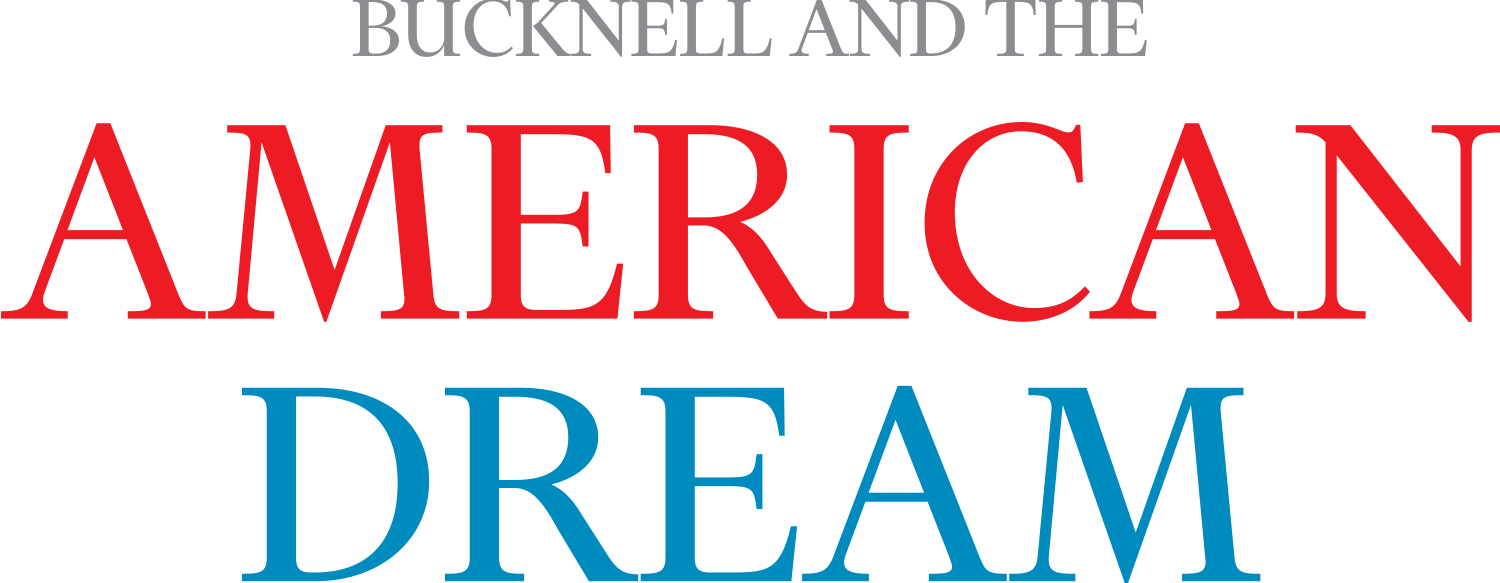
photographs by dustin fenstermacher
In 1991, when Bucknell held a four-day campus-wide colloquy on the state of the American Dream, the organizers started with the premise that the dream was “Sweet for Some; Sour for Others.” According to a flier found in the University archives, the many questions the colloquy posed included, “Is there a pervasive American Dream at Bucknell? Is it elitist? How does it fit in with the nation as a whole? Are there different American dreams for blue- and white-collar workers, the unemployed, the disabled, prison inmates, recent immigrants? Do men and women have different American dreams?”
The archives don’t offer much about the colloquy’s outcome. An article in The Bucknellian announced, “Colloquy meets with mixed success,” and mentions that “feminist football player” Jackson Katz drew the largest audience and attention. There was no mention of the keynote speech by journalist Richard Reeves, invited because he’d been traveling 15,000 miles across the U.S. asking about the American Dream. Much of the Bucknellian article dealt with grumbling that the student paper hadn’t supported the colloquy with advance information about events or covered follow-up discussion.
The colloquy did, however, prompt an article in The New York Times. It mentioned that the hot topics on Bucknell’s campus then were “tightening of alcohol policies, a faculty attempt to jettison the Greek system and an increasingly aggressive feminist movement.” Memories were still fresh of “security raids on fraternity parties,” which had “prompted a near-riot last Halloween, involving 1,000 students.”
Just eight months before the colloquy, the U.S. had fought and won the first war with Iraq. But when it came to bigger issues affecting the whole country, the Times account asserted that it is “generally acknowledged” that the Bucknell student body is “apathetic.”
When Reeves said the American Dream was alive and well, the Times reported, he was “pounded with demands that he justify his position.” The account also briefly mentioned “a discussion of how women can achieve the American dream when men treat them as inferiors.”
Fast forward to today. After a quarter-century of turbulent economic and social change, Bucknell Magazine took another look at how Bucknellians view the state of the American Dream. We talked with a diverse (but admittedly unscientifically selected) mix of students, alumni, staff and faculty.
We found that the Horatio Alger version of the dream — anyone can work hard and enjoy fantastic success — is seen as a comforting myth the country tells itself, though for some, the story is indeed true. There’s no better example than Bucknell’s own Ken Langone ’57.
Coming from humble roots — his dad was a plumber and his mom worked in a cafeteria — Langone helped pay his way through Bucknell by spending summers digging ditches. Besides going on to great success in the world of Wall Street finance, Langone helped found and build Home Depot into the world’s largest home-improvement chain. He is now a world-class philanthropist, having joined, with his wife, Elaine, the Giving Pledge, a commitment by the world’s wealthiest individuals to give away more than half of their wealth.
In our interviews, Bucknellians seemed to agree that hard work alone is not going to produce spectacular success in America. Those born into tough circumstances face much higher — perhaps even insurmountable — hurdles. Racism, sexism, gender discrimination and poverty still suffocate the dreams of many. The huge and growing gap between rich and poor is a big concern. Langone said on Fox Business Network in October 2016, “the biggest threat to us as a nation is income inequality.” The way to close that gap, Langone said at the time, is through education.
Bucknell students and alumni are well aware that their education gives them a big head start in the race to reach the American Dream (although as Brandon Simmons ’10 points out, some Bucknell students start much further ahead than others). However, among recent Bucknell graduates, there was anxiety about the future. Student loans can be a heavy burden. Competition for jobs is intense. Getting ahead requires a break of some kind — a mentor, a random stroke of luck.
After graduating with significant debt, Megan Ruane ’17 worked six months for her father in West Virginia to save money before she moved to Washington, D.C., and began hunting for a job as a congressional staffer. “I’m not saying it’s impossible for people to achieve the American Dream,” she says. “It’s just definitely not as feasible any more.”
Among some demographics, the picture is especially grim. In her extensive work among working class and impoverished whites, sociology professor Jennifer Silva has found that many believe “the American Dream is dead.” Kathryn Modugno ’14 looked at the American Dream for her Bucknell honors thesis and found that Americans are becoming increasingly pessimistic about the rags-to-riches story. She wrote that “nearly half of Americans believe those stories are exceptional and they don’t live in a society that would ensure equality of opportunity.”
“I think there’s a generational gap, too,” Modugno says. “People in my generation are increasingly pessimistic about the American Dream. My parents’ and grandparents’ generations view it much more positively.”
Bucknellians who’ve immigrated to the U.S. also seem to have a more optimistic take on the American Dream. Coming from countries afflicted by civil war or widespread poverty, or where long-held traditions limit women’s roles, they have found the doors to opportunity here are open. Zumra Thweatt ’09 and Toan Phan ’06 both said they left countries where teachers might give you a bad grade, no matter how well you did, unless you bribed them. Bucknell Vice President for Human Resources Pierre Joanis, born in Haiti, says, “My sense is that there are very few places that offer as many opportunities as our country does.”
How do Bucknellians define the American Dream? The National Association of Realtors might be disappointed. No one we asked defined it as the iconic house in the suburbs, with a picket fence and a grassy yard, complete with a happy family and a dog. Bucknellians seem to view the American Dream the same way as the man credited with coining the term back in 1931 did. In The Epic of America, James Truslow Adams described “a dream of a land in which life should be better and richer and fuller for everyone, with opportunity for each according to ability or achievement … regardless of the fortuitous circumstances of birth or position.”
“In general, Bucknell students do have a dream, an idea that they can make a difference,” says Gary Sojka, a professor emeritus of biology who was Bucknell’s president when the 1991 colloquy was held. “They’re interested in social entrepreneurism; they’re interested in social movements. Frankly, I’m encouraged by it. It kind of ties us back to our old founding roots, when this was the Baptist seminary in the wilds of Pennsylvania. The idea then was to do good. I sense that that’s growing in our student body. That’s a change since the early 1990s. We had kids back then who seemed to be really focused on financial success or [reaching] positions of authority.”
Once Americans achieve the dream, though, their grip on it can be slippery. Acclaimed author Philip Roth ’54 offered a cautionary tale on just that point in his 1997 novel American Pastoral. The story’s hero is a Jewish immigrant who has it all — football stardom in high school, a beauty-pageant wife, a house in the country and a successful business. But it all comes apart in the upheaval of the late 1960s, amid widespread riots and Vietnam War protests.
One reviewer described Roth’s novel as portraying “a country’s collective pining for a past that’s part factual, part mythical.” With so many in our country yearning to restore the era when America was “great,” Roth’s 1997 work is still relevant — the book was made into a movie in 2016.
If the sense at Bucknell in 1991 was that the American Dream is “sweet for some; sour for others,” today you might say that it’s “still sweet for some, sour for many more.” We found a desire to see the country live up to the promise embodied in Adams’ 1931 American Dream definition and bring it within reach for all. Sometimes, the necessary help can be delivered piecemeal, one person at a time — a scholarship here, a mentorship there, a fundraiser for someone suffering misfortune. But many we spoke to are eager for society-wide progress that will require systemic changes — to cure the poison of poverty, to end discrimination, to ensure good health and effective education for all. Though there may be differences among Bucknellians about the best path forward as a country, they still see the American Dream as a worthy ideal and believe in making it real.
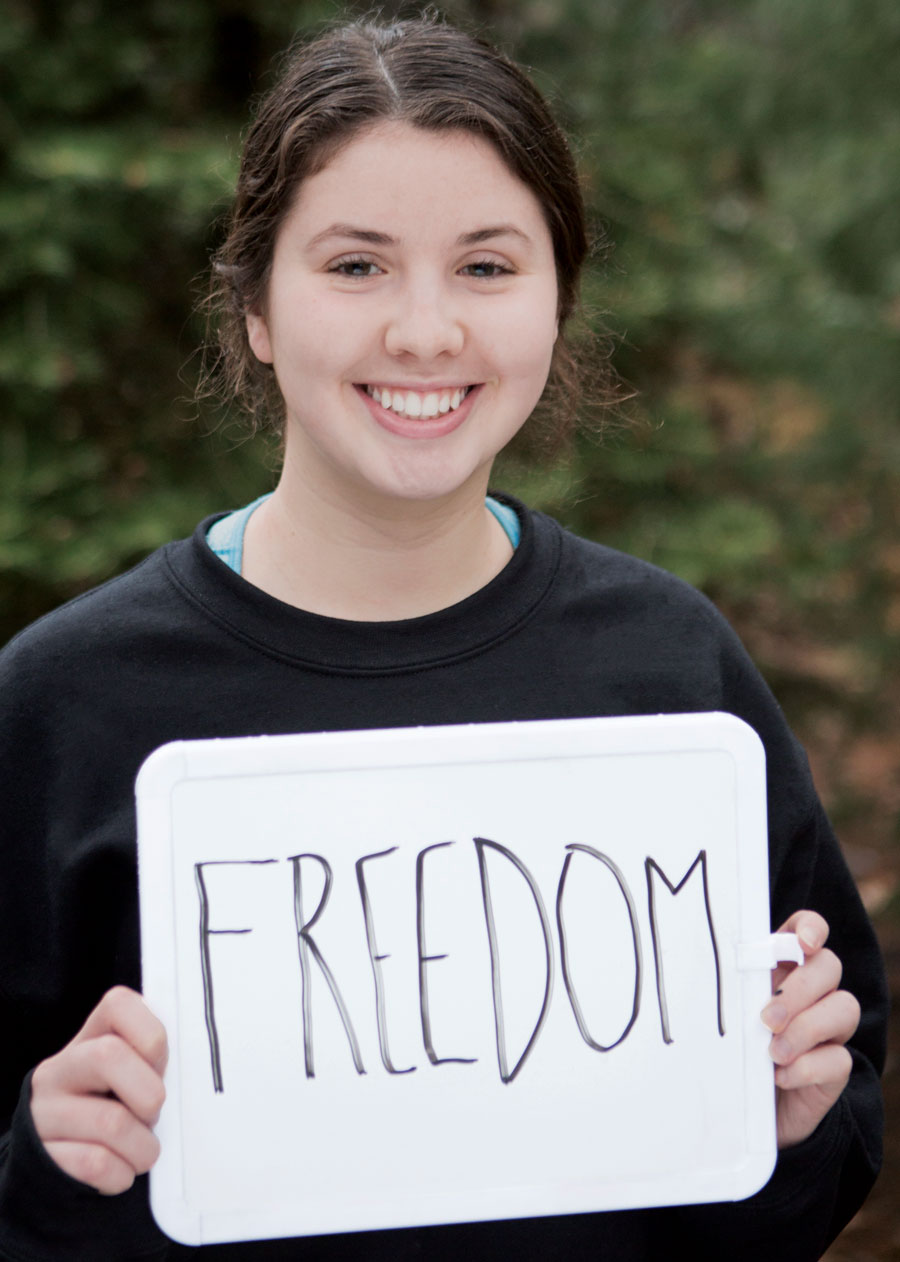
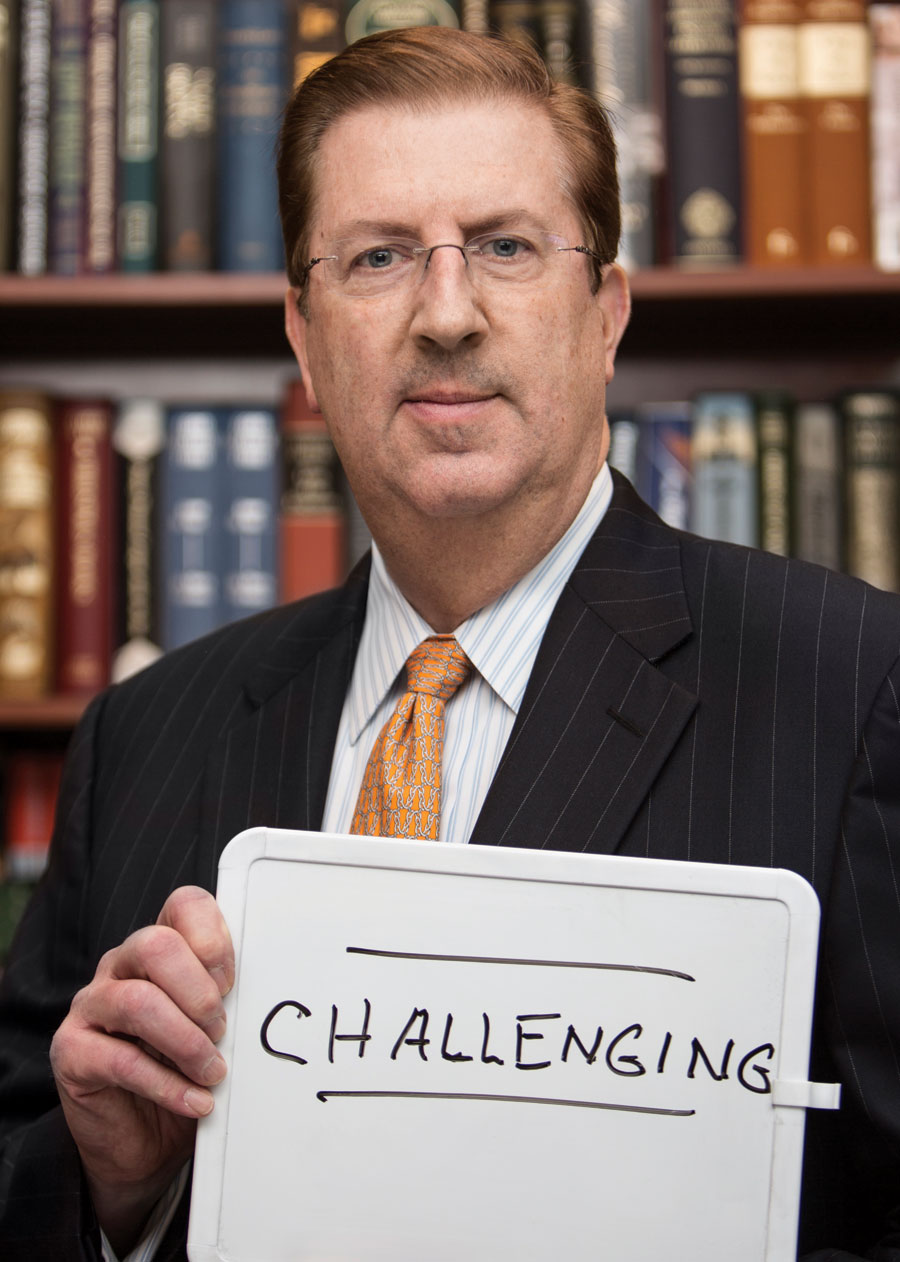
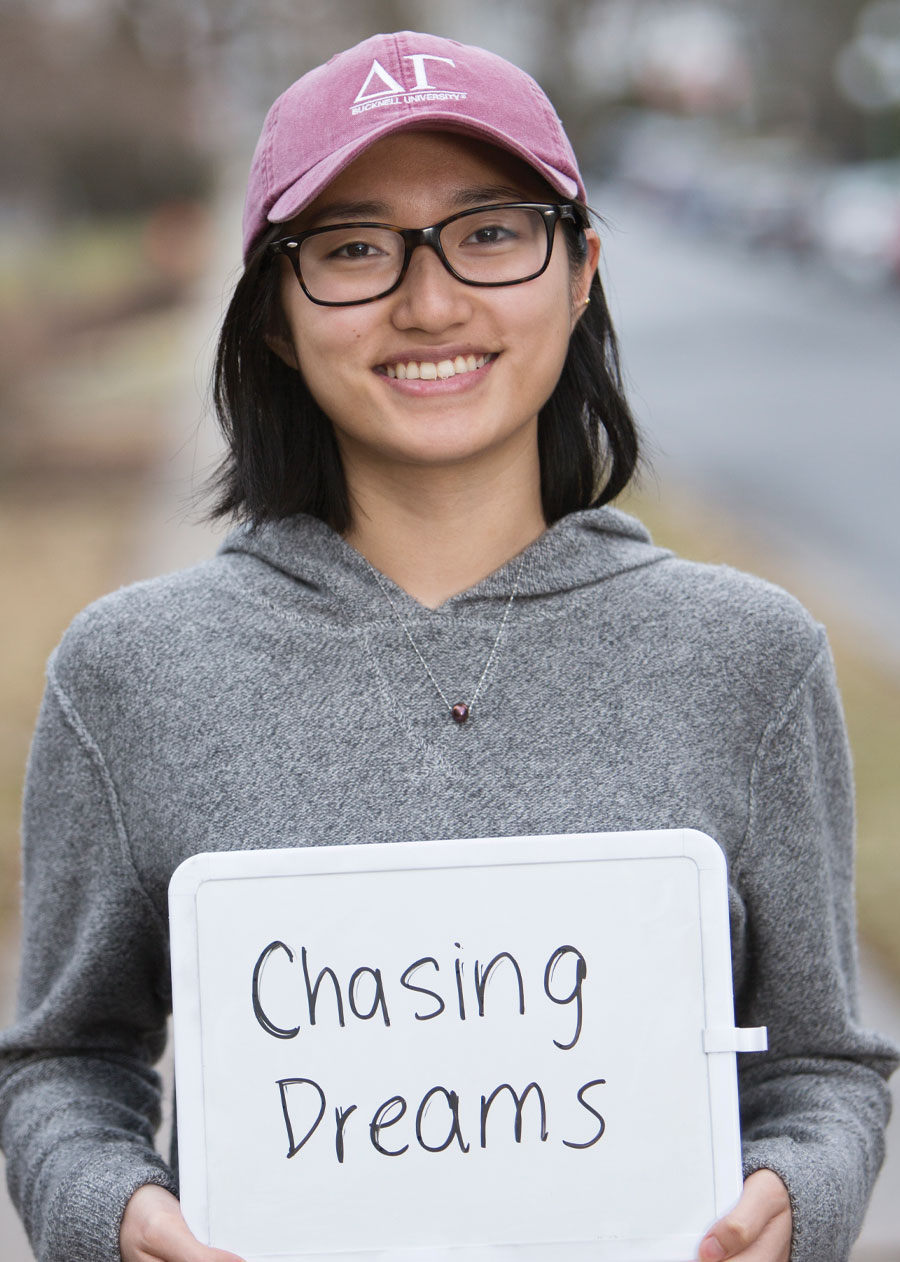
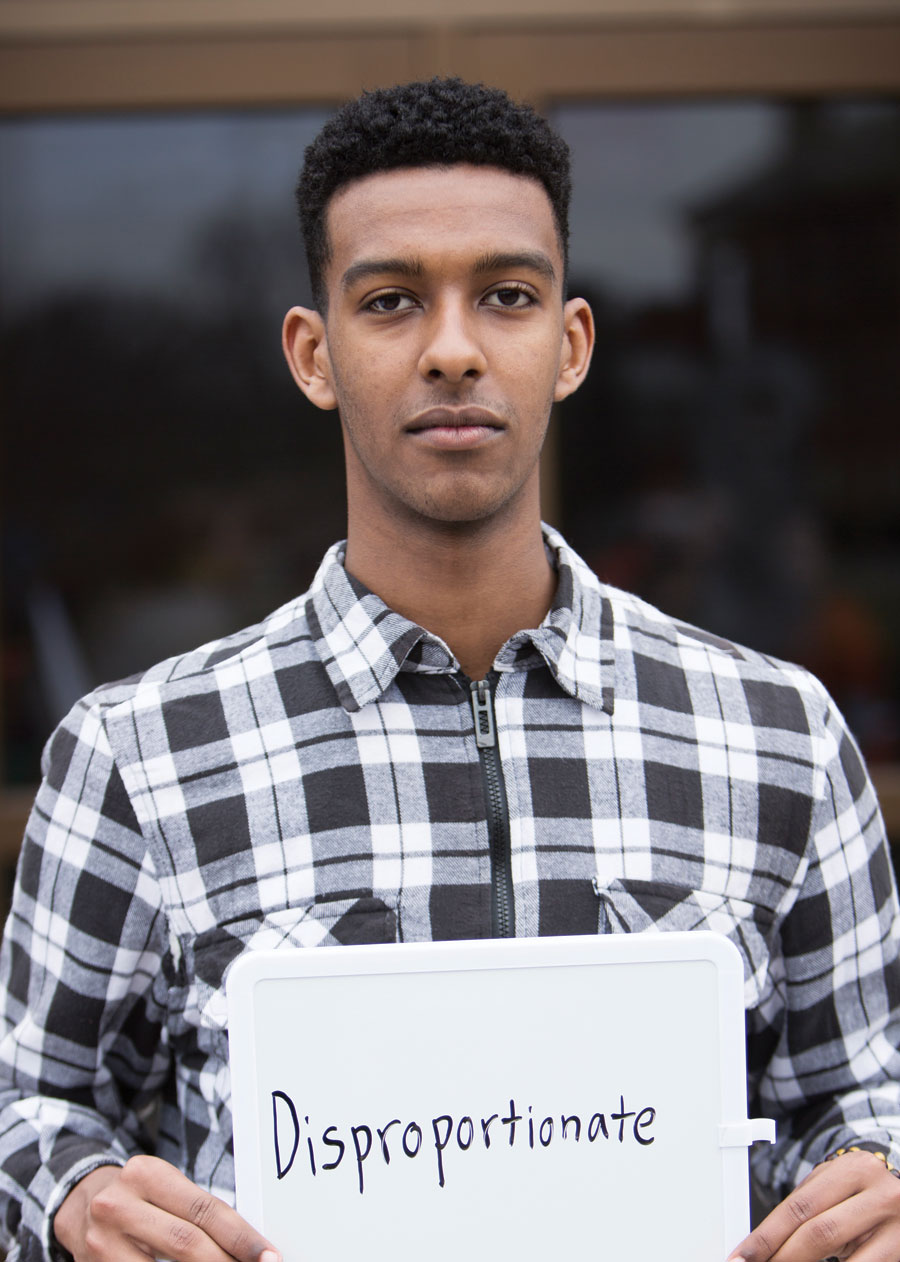
Above, from left: Kathryn Nicolai ’20, President John Bravman, Michelle Choe ’18, Galaan Abdissa ’21.
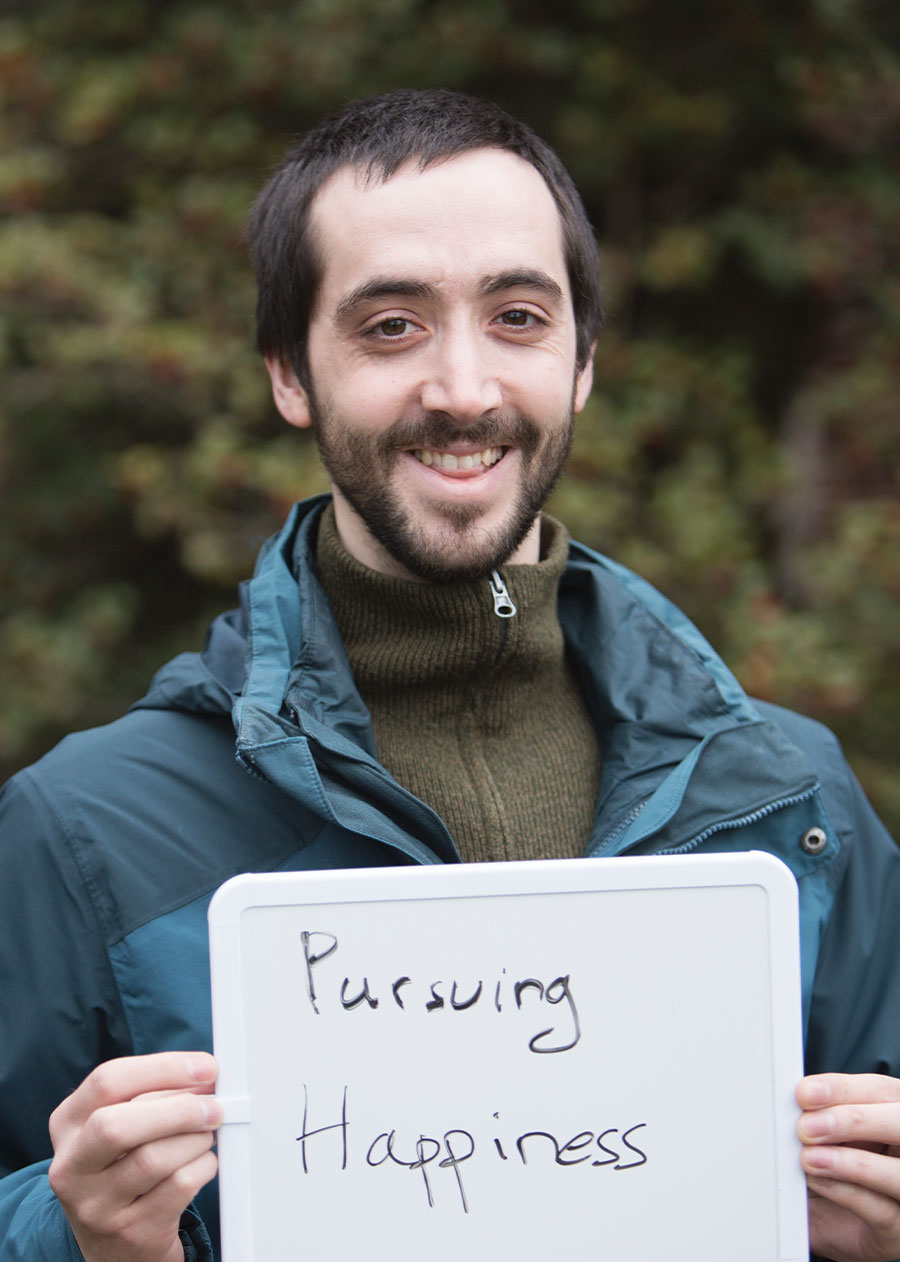
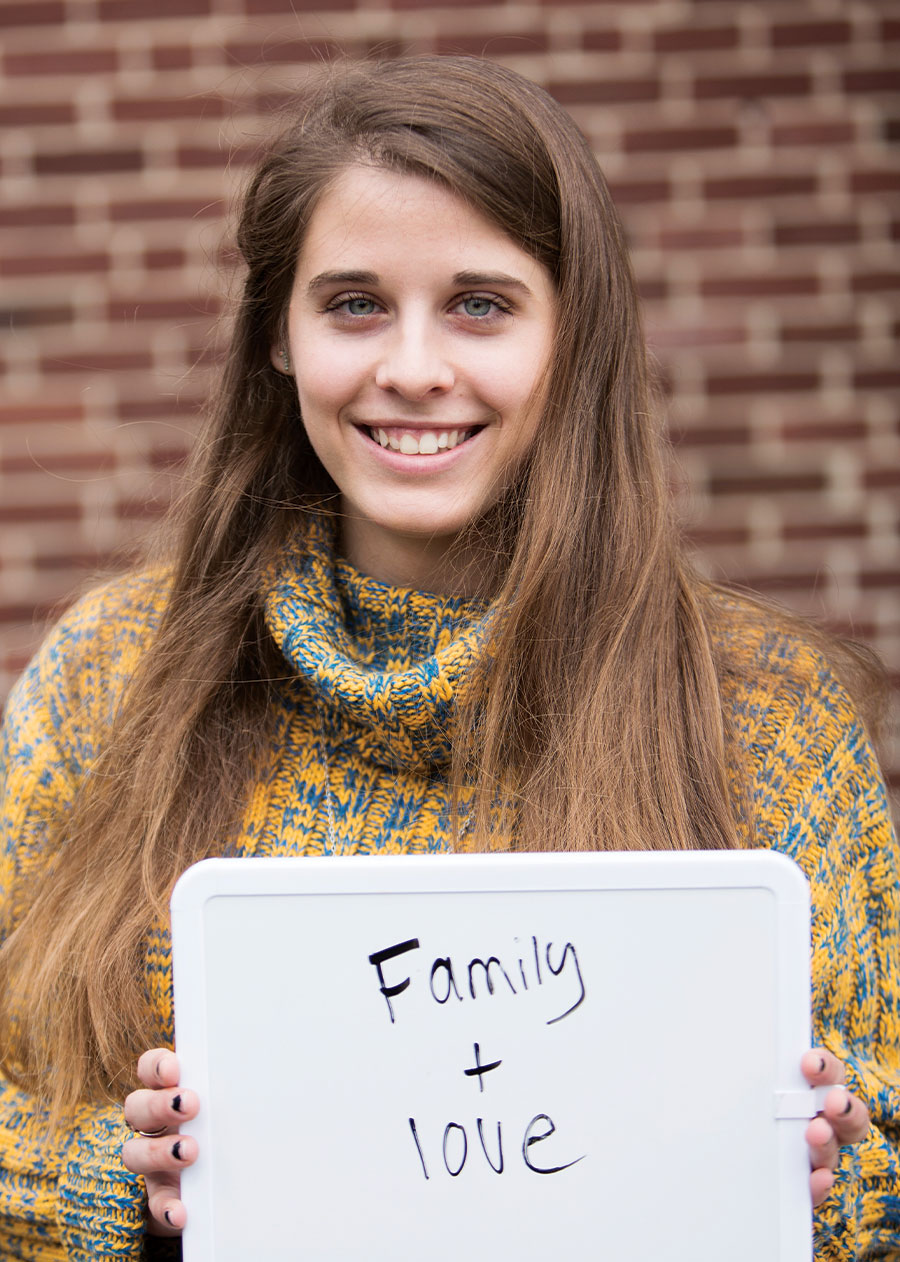
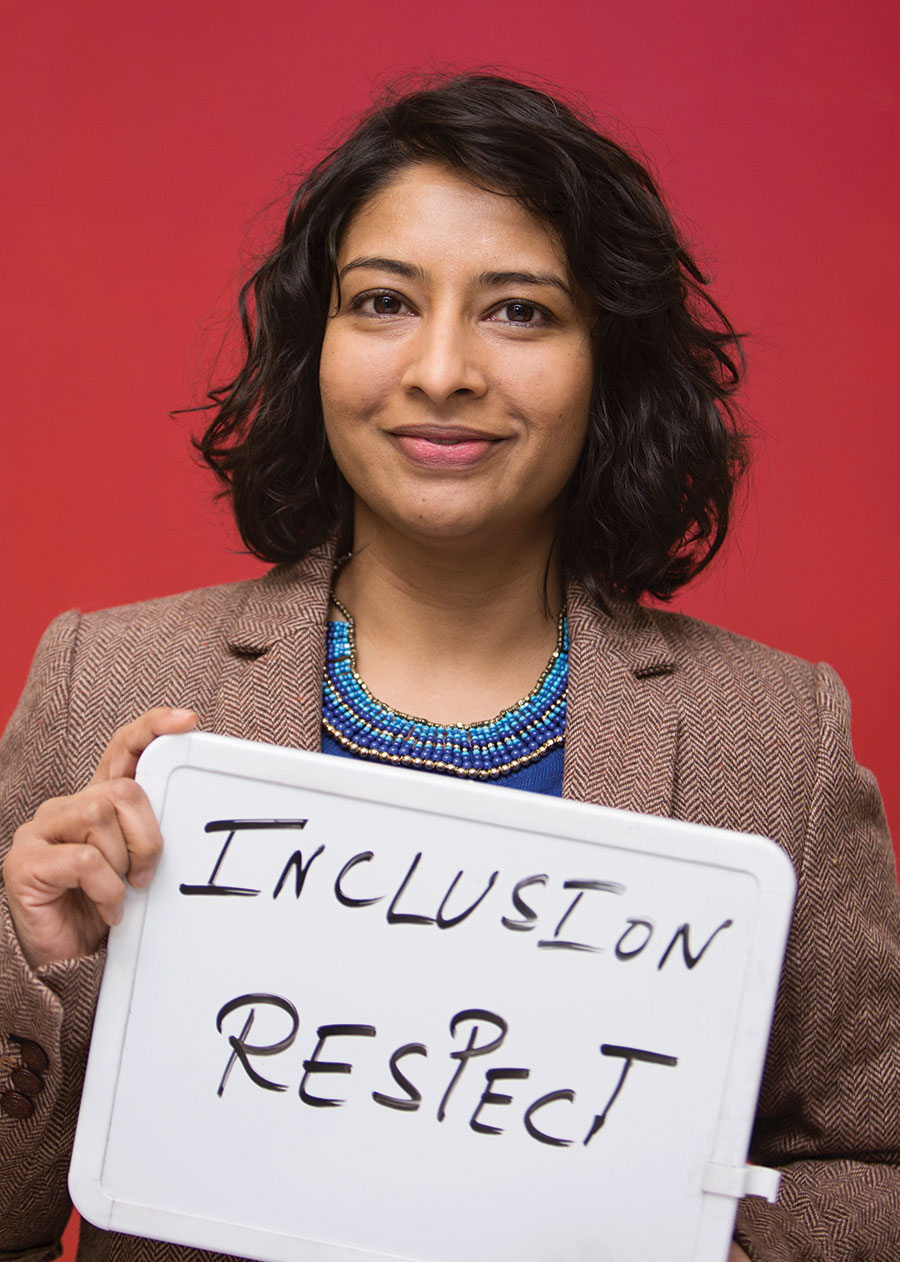
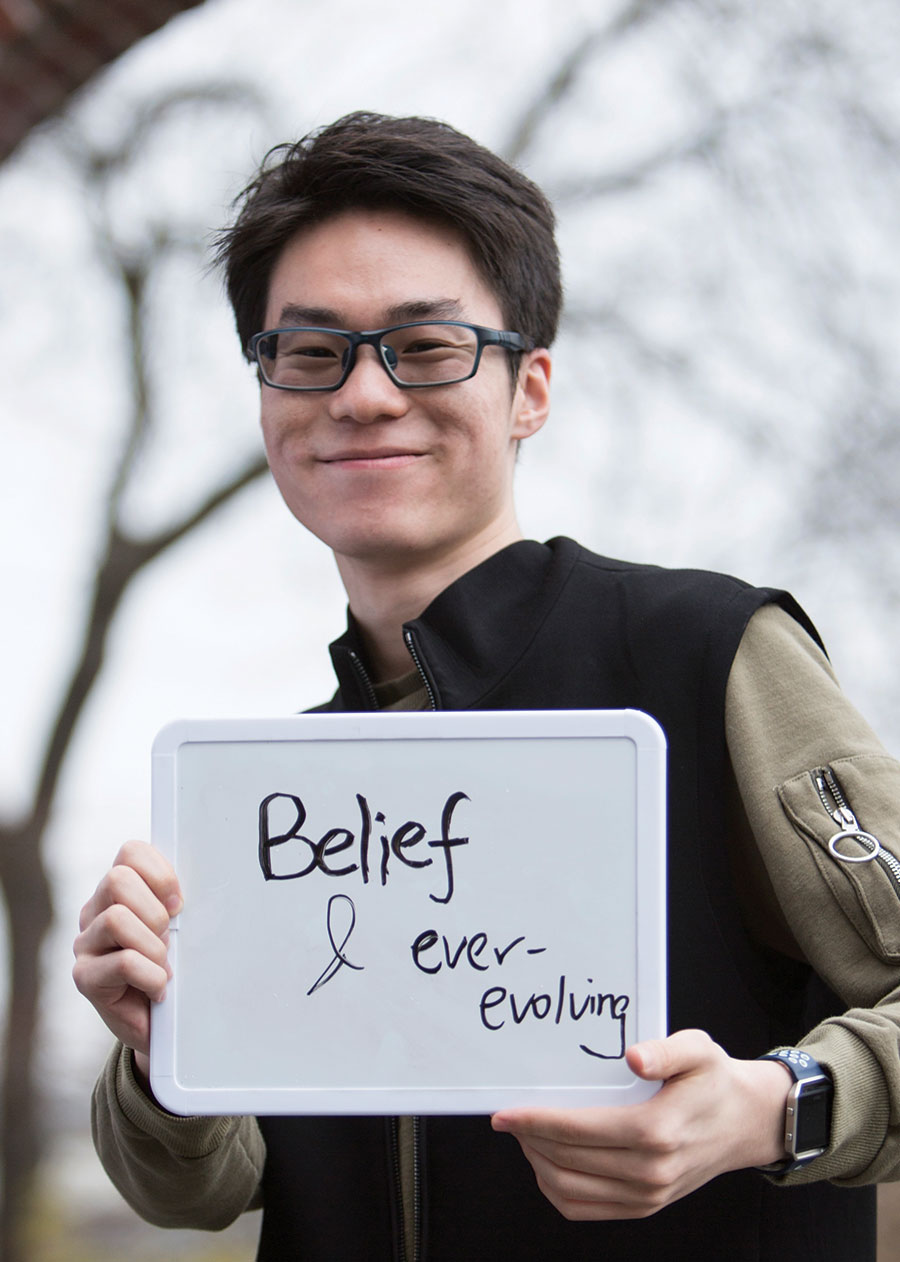
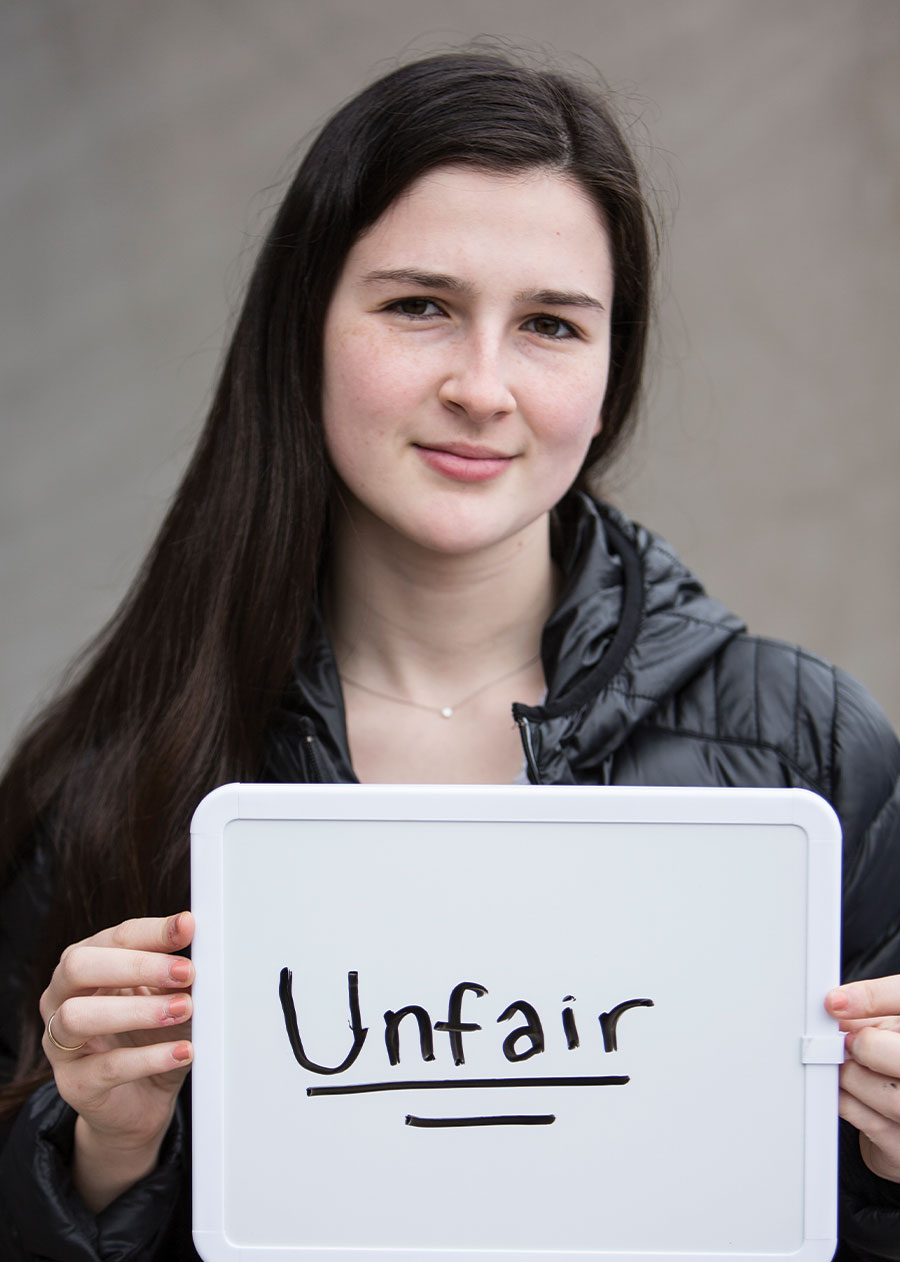
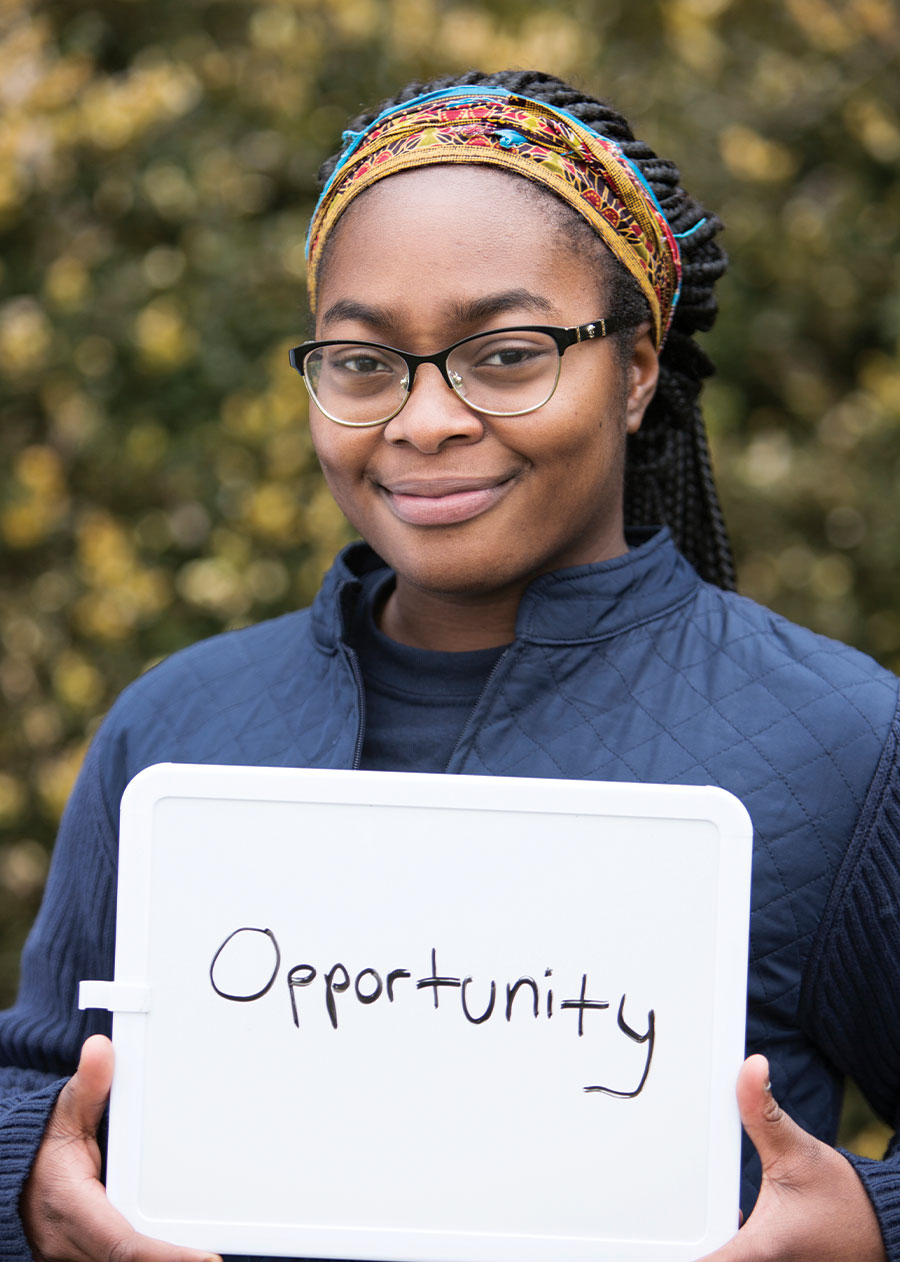
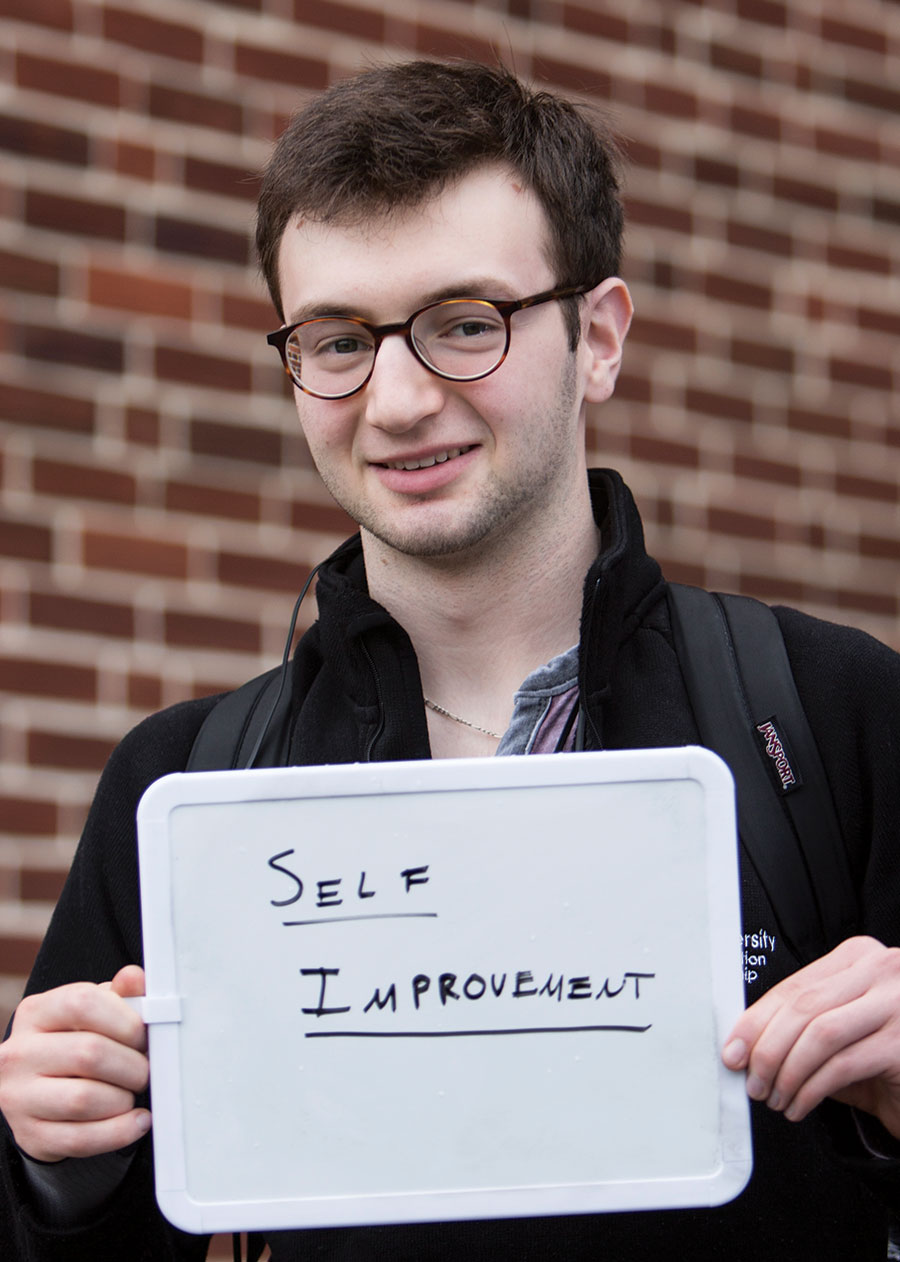
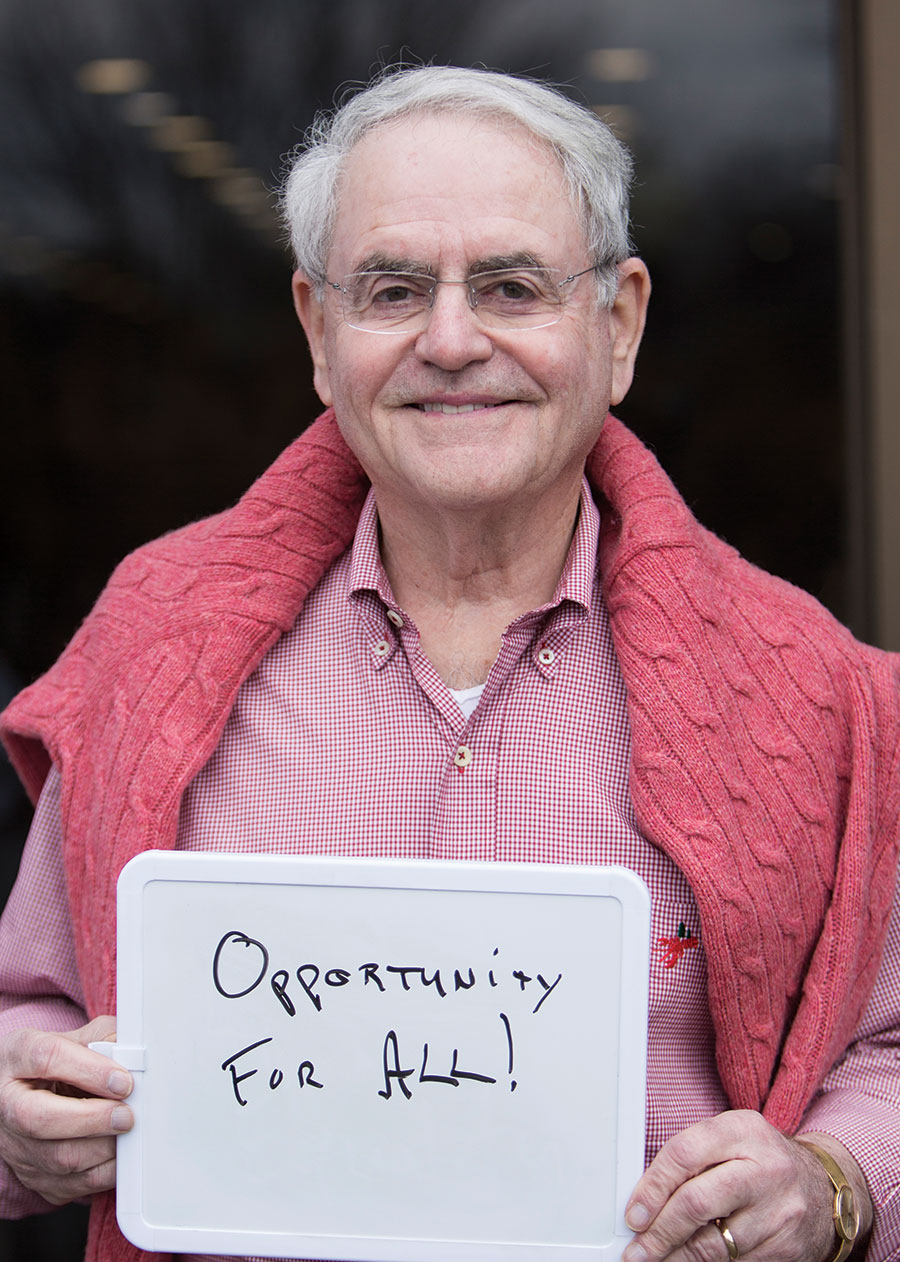
Top row, from left: Kathryn Nicolai ’20, President John Bravman, Michelle Choe ’18, Galaan Abdissa ’21.
Second row, from left: Juan Marcos, Spanish teaching assistant from Spain; Kat Townsend ’19; Professor Soundarya Chidambaram, political science; Yiwei Wang ’19.
Third row, from left: Marleina Cohen ’21, Joyce Obeng ’19, Matt Drescher ’20, Ed Samek ’58.
Fourth row, from left: KJ James ’21, Charlotte Detwiler ’18.
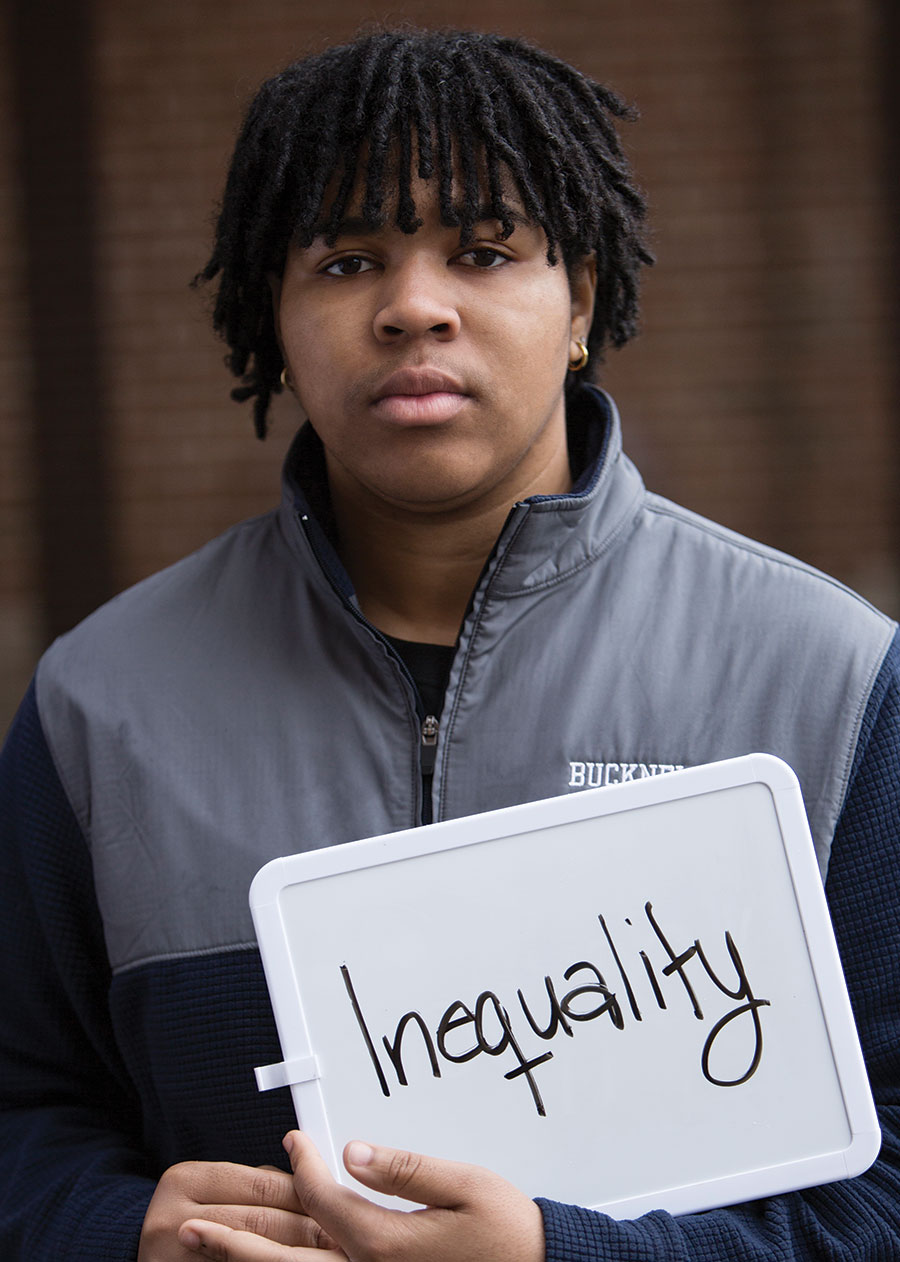
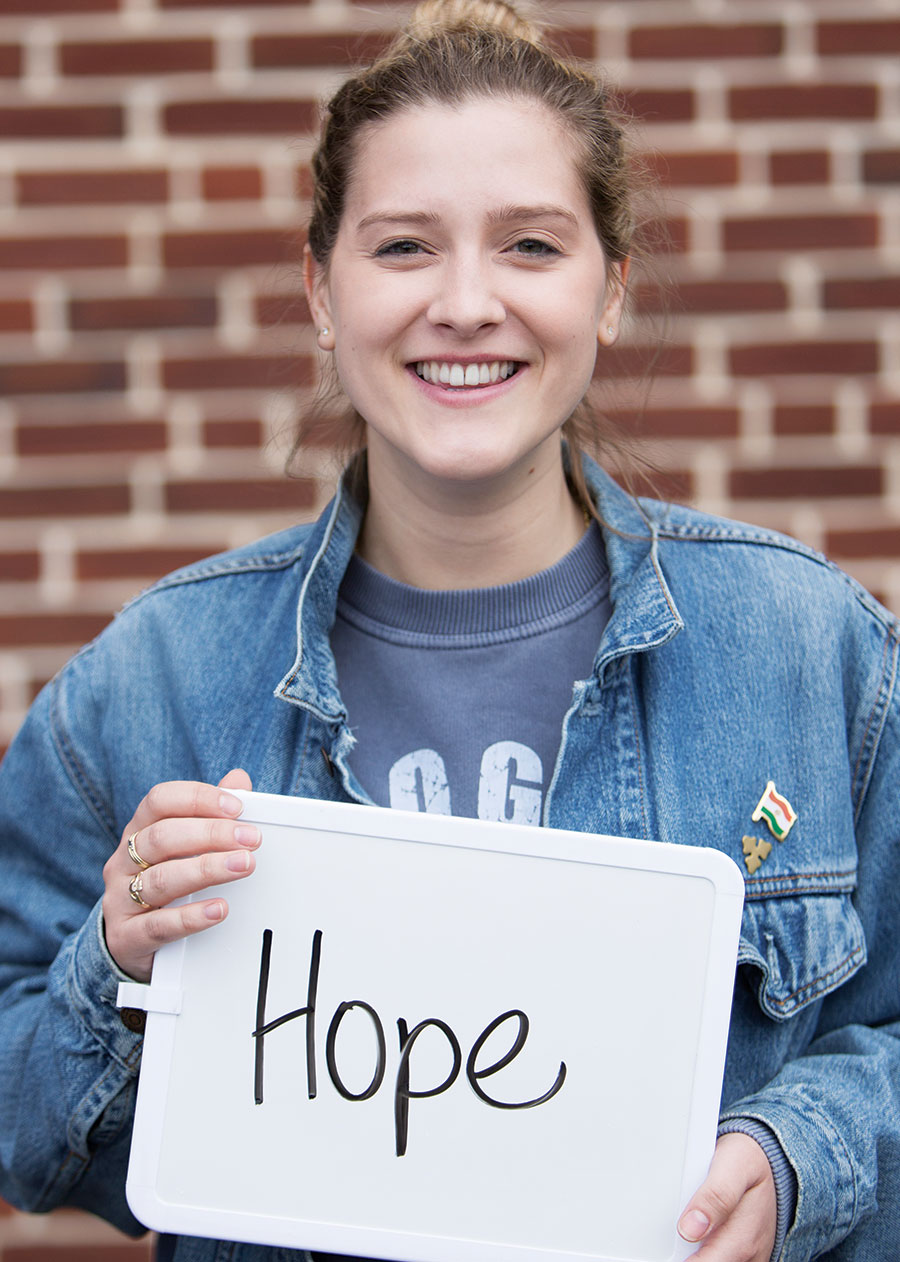


The American Dream — the concept that anything can be achieved, with few barriers? I disagree. I’m not certain it’s true for everyone, in every social class.
In talking about the American Dream, race is usually left out. My father’s message was that as an African-American, you need to work hard. Twice as hard. Ten times as hard. But I came to learn that hard work is only part of it. At Bucknell, I learned there are social, relational and political aspects to it. College taught me the game, the known but unspoken rules of engagement to success.
I want to make the American Dream more widely available to others, so they can succeed and fulfill their purpose in life.
My barometer for “success” has always been far more emotional than material. When we were young kids, my parents struggled financially, only to achieve wealth years later. I never knew this. I was loved. I was happy.
Today, there’s certainly a financial security to a career in medicine, but the emotional reward that comes from quality time with my wife and three kids — that’s for sure what it’s all about.
The American Dream means achieving a goal. My main goal is to get better and better, every single day, every single year.
There are others who don’t have the opportunity [that I’ve had]. They get held down. [Pursuing the American Dream] is really a game of chance, but as long as you have a chance, you can make anything happen.
Time will tell if I make the American Dream for myself. I’m hoping to get that before they close the casket on me. But I think the next generation will definitely make more dreams come true. As long as we stay united — and honor and respect everybody’s dream — we’ll be good. That’s what America is: Respect the dream — go ahead and achieve it.
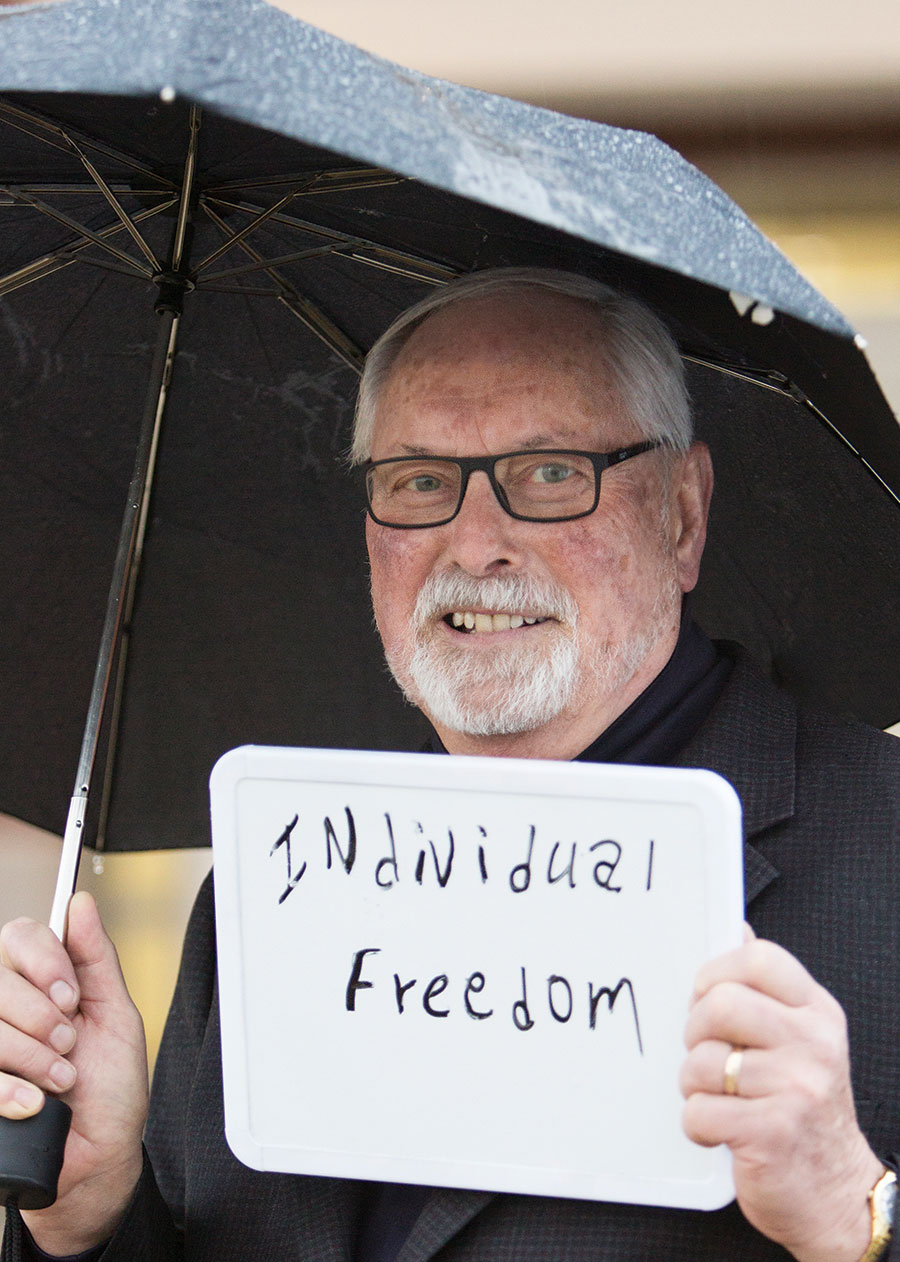
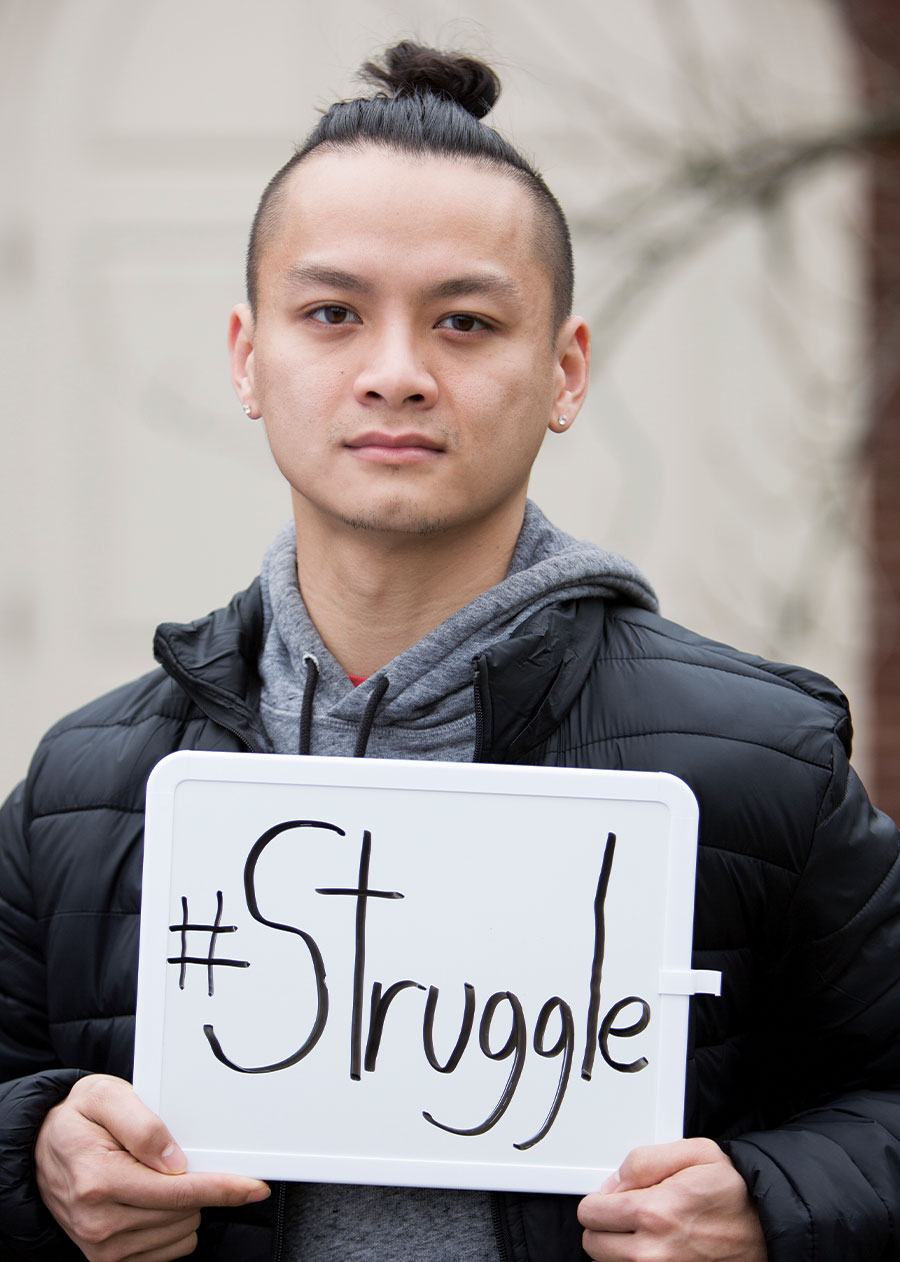
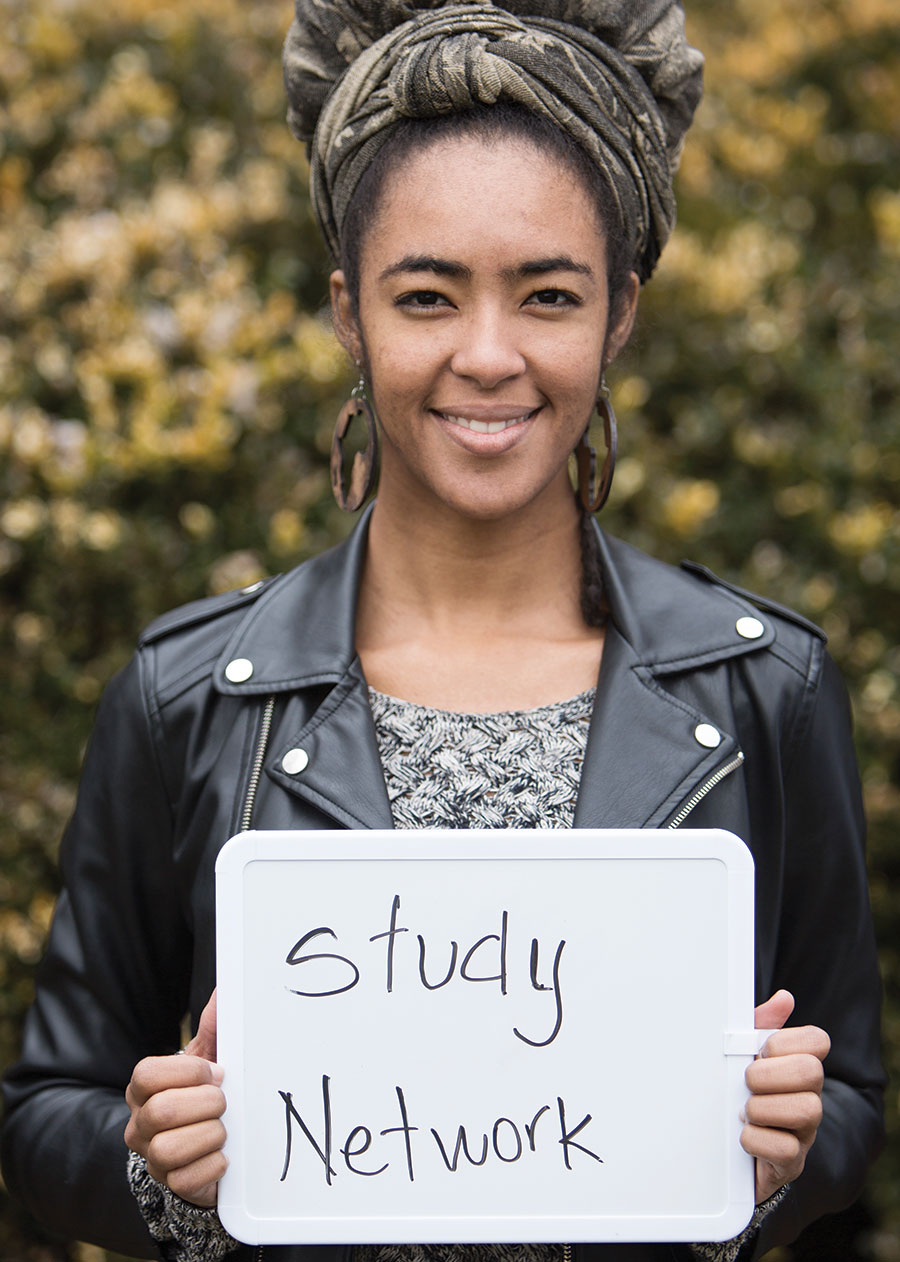
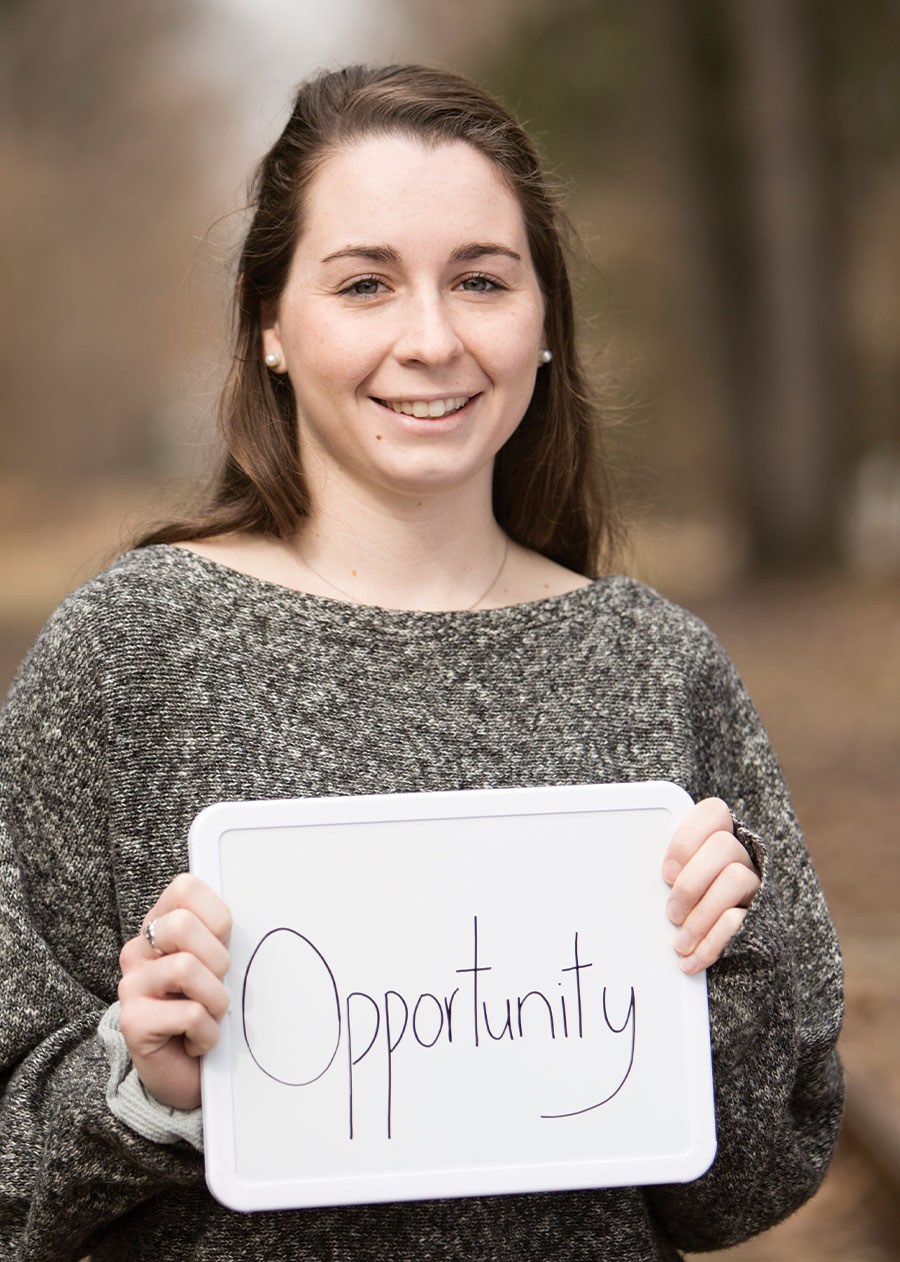
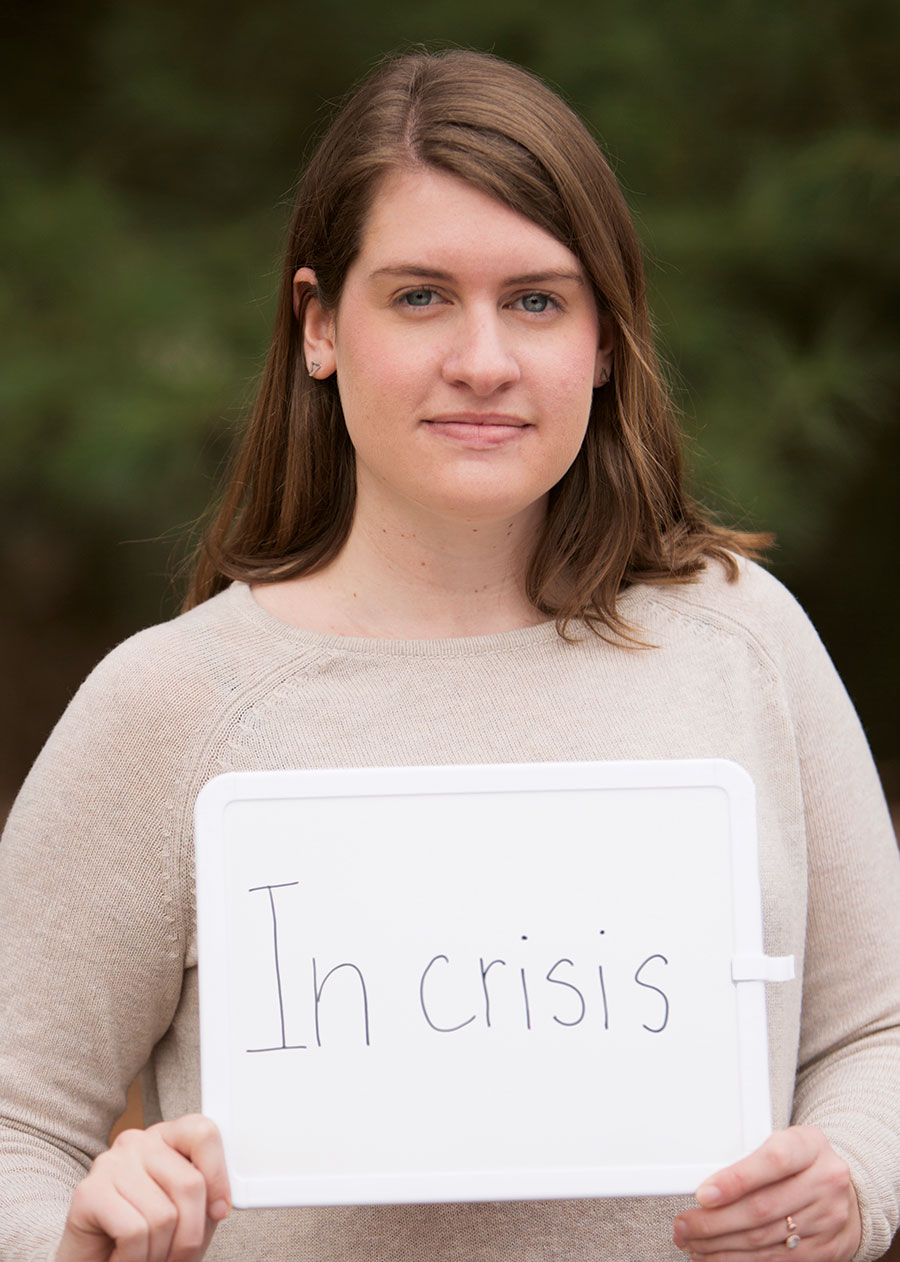
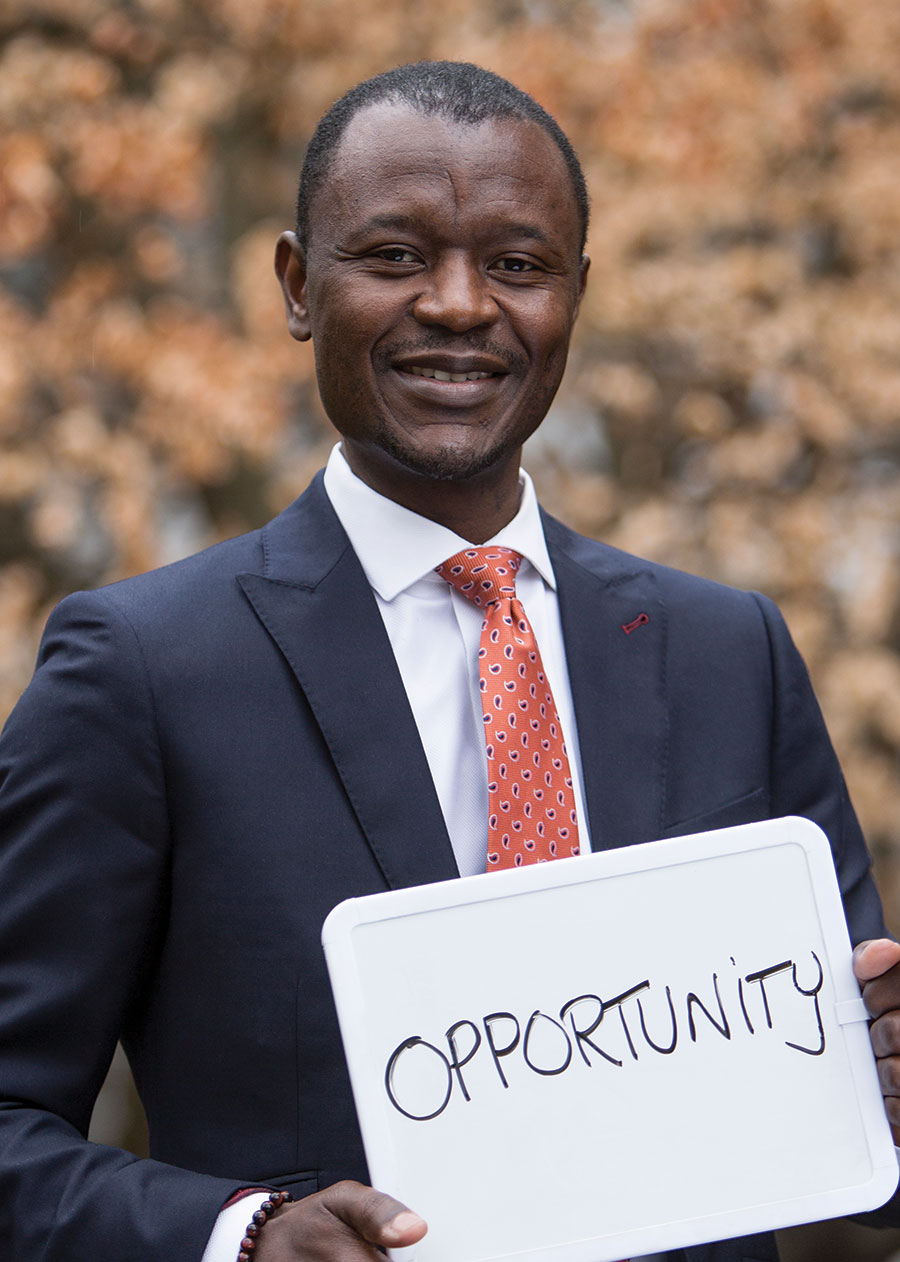
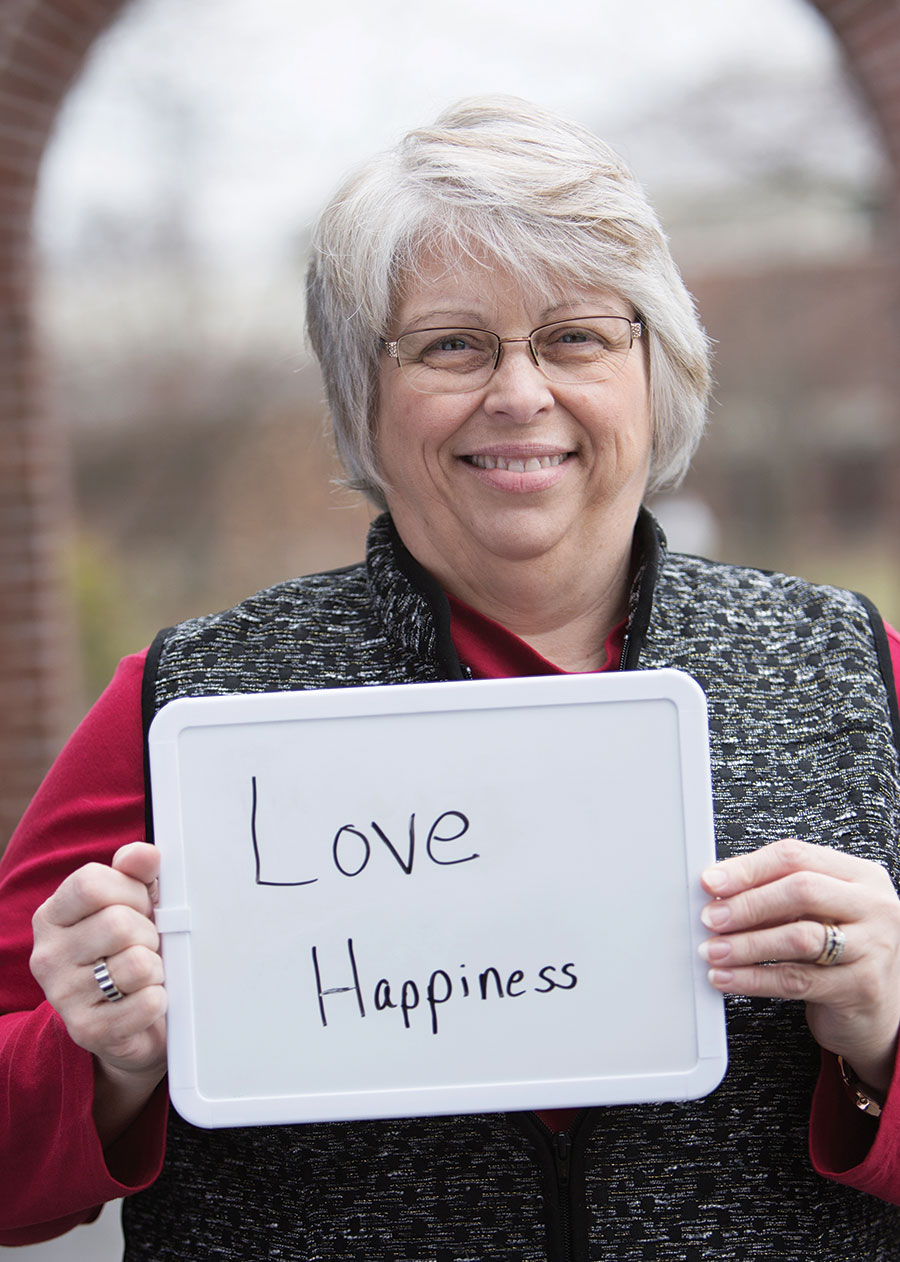
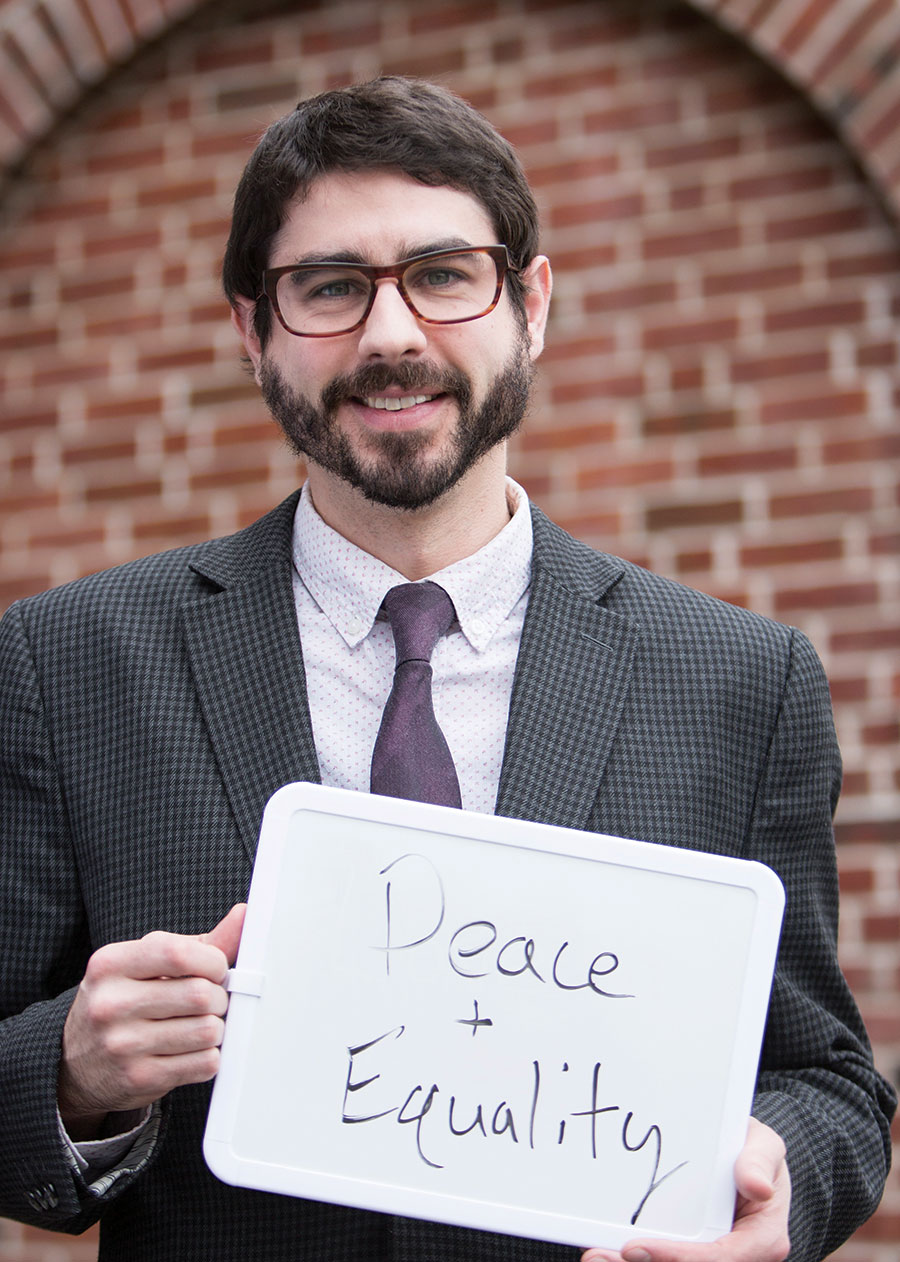
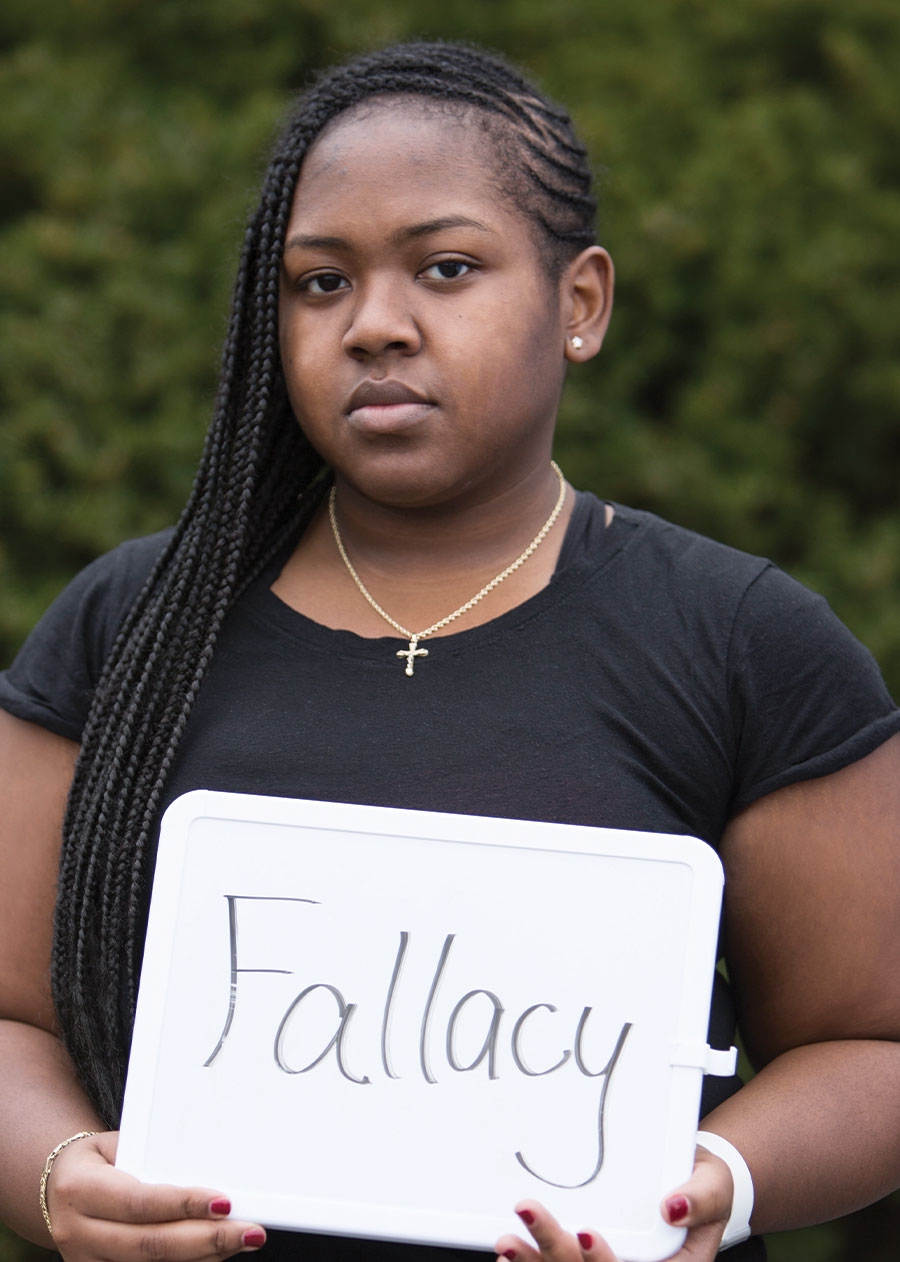
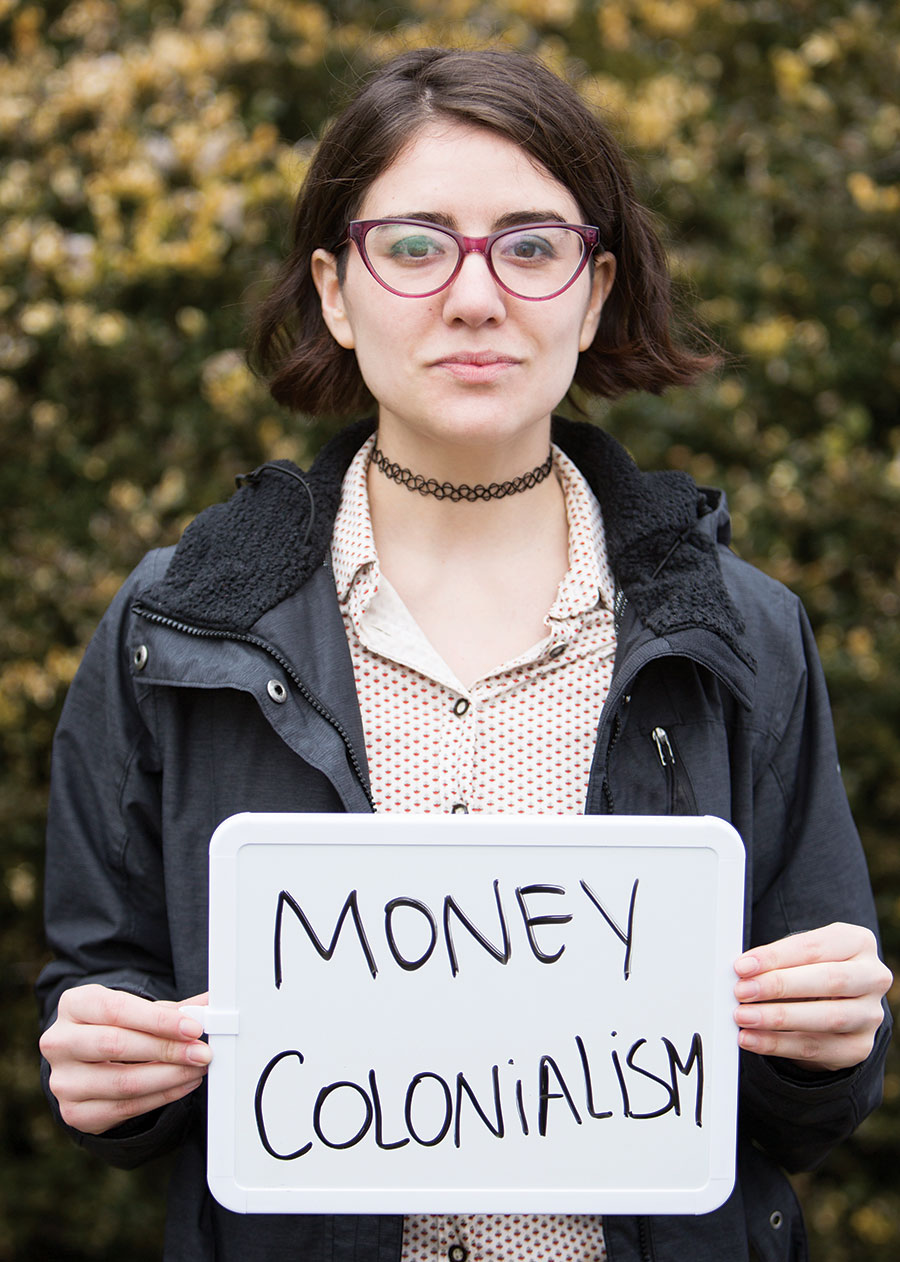
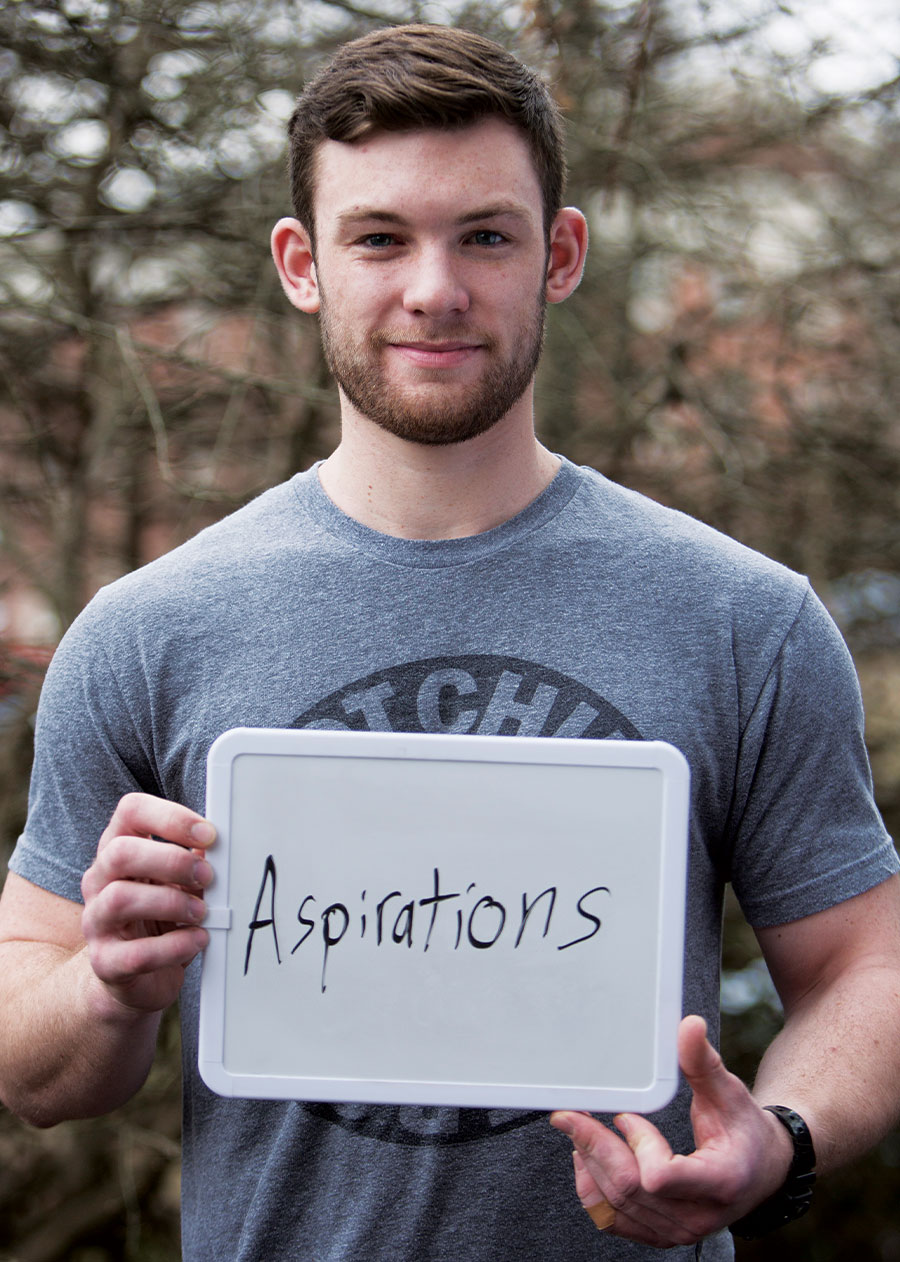
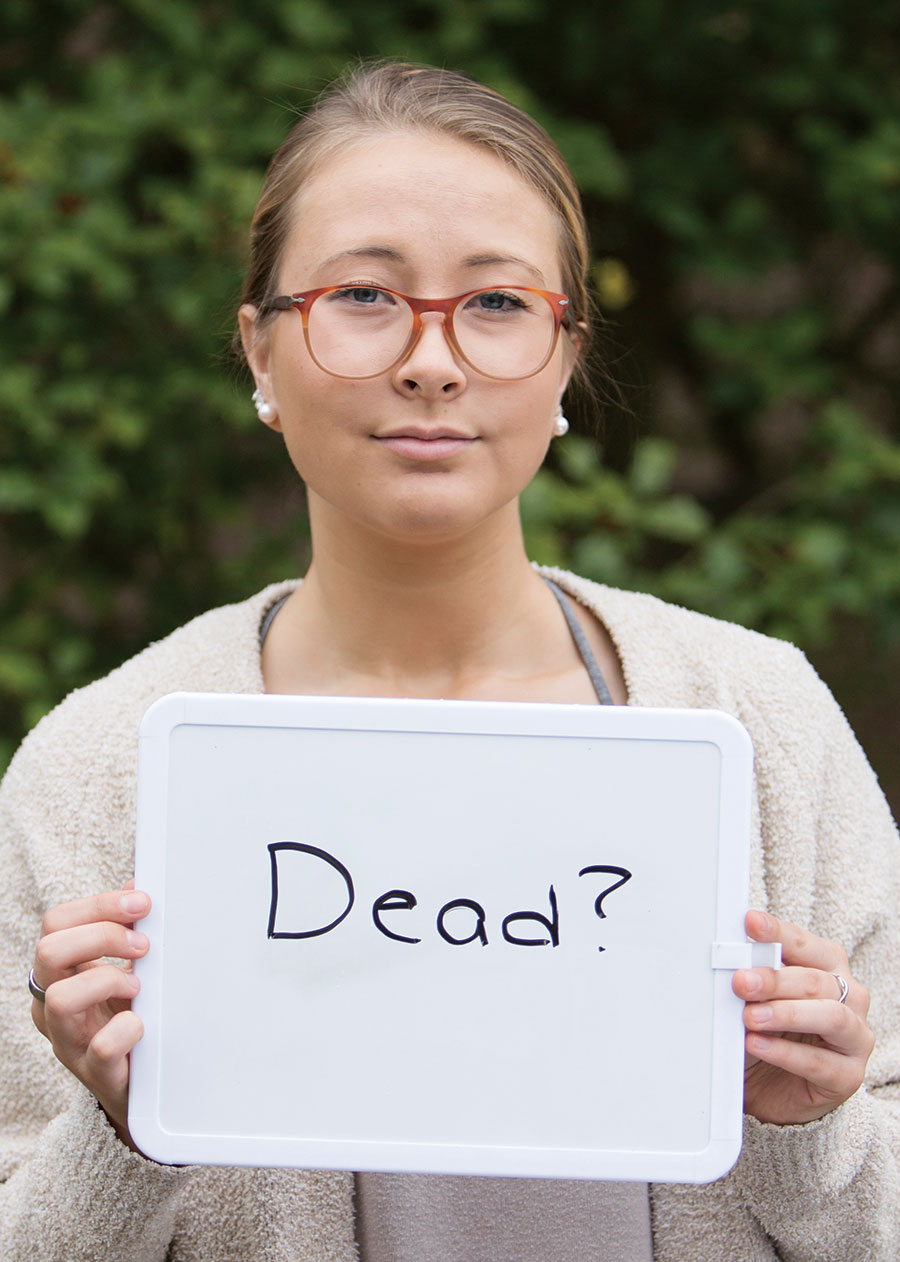
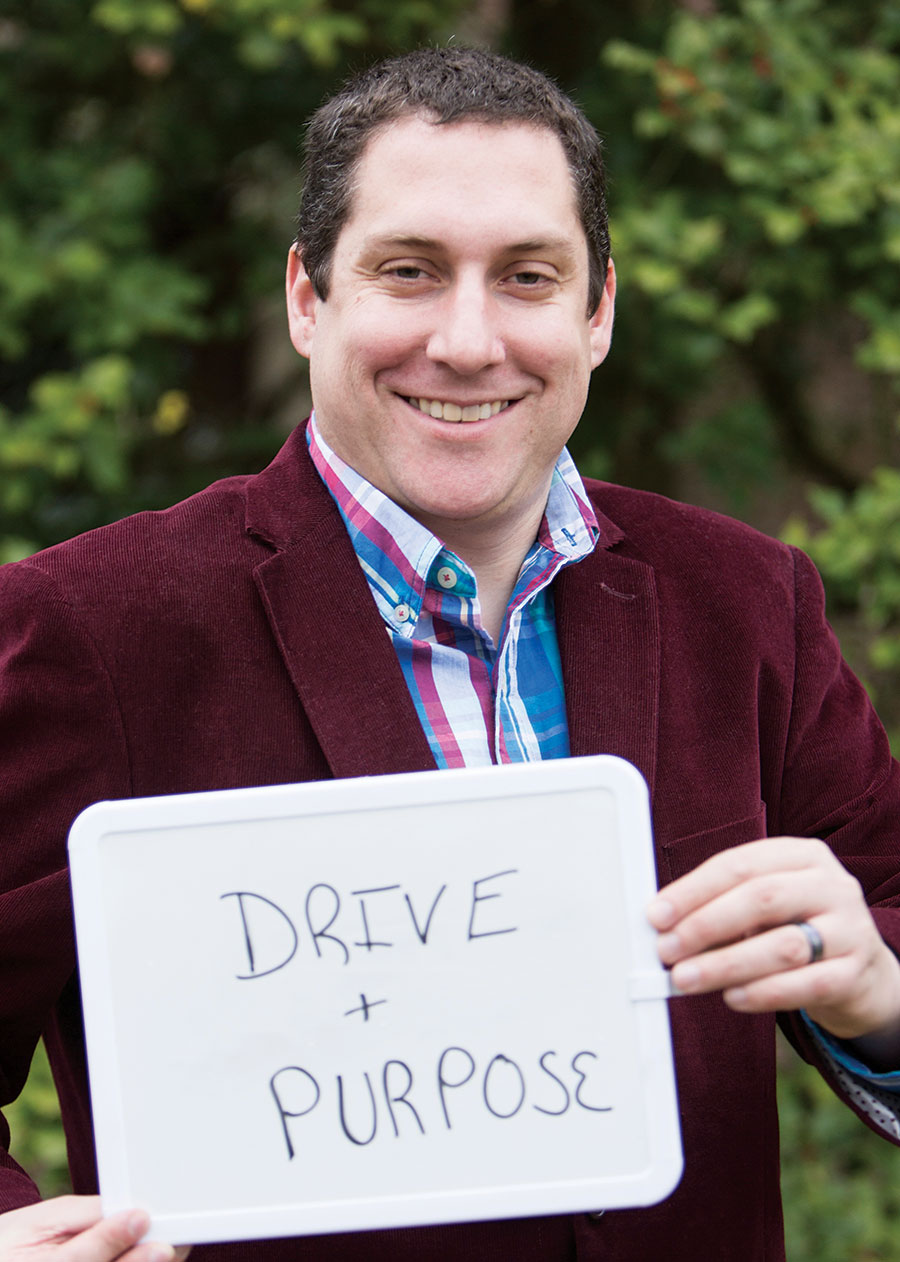
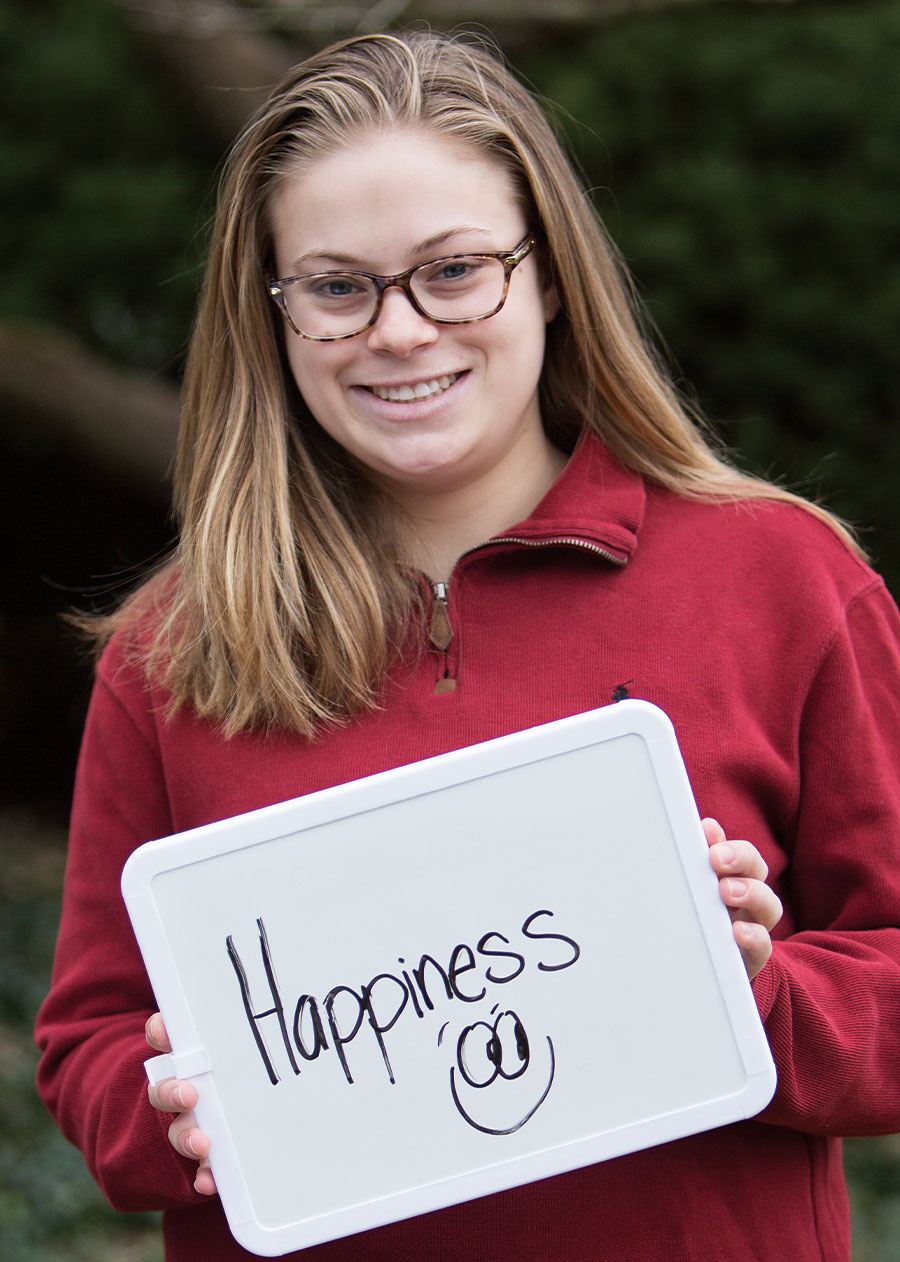
Second row, from left: Barbara Bell ’18; Pierre Joanis, vice president for human resources; Michelle Kerstetter, assistant catering director; Kevin McDonnell, director of retail operations.
Third row, from left: Trevana Eades ’18; Pilar Villanueva, Spanish teaching assistant from Chile; William Wall ’20; Olivia Spaccasi ’20.
Fourth row, from left: Mike Duignan, director of campus activities & student organizations; Julia Macedonio ’20.
When we talk about the American Dream, we think that if one person made it, then everyone else should be able to make it. Or we think that if you haven’t yet fulfilled the American Dream, it must be a personal failing.
I understood from my values, my teachings, my parents, that if I worked hard enough, I would make something of myself. But it wasn’t until I got to college that I began to see that, sometimes, no matter how hard one works, there are systems and structures in place that reproduce one’s social class, one’s place in the economic structure.
We have to expand the idea of the American Dream so that we begin to close the inequality gap. We need to include nonmaterial values like happiness, service to others, being global and local citizens and [maintaining] a commitment to values of justice and equity and inclusion.
For me, the American Dream represents what is possible when people are truly afforded the opportunities to achieve the best version of themselves and their truest ideals.
My sense is that there are very few places that offer as many opportunities as our country does. I don’t believe it’s dead, but I think this mythical belief of what the American Dream is has always been false. The American Dream means different things to different people.
Throughout our culture and our history there have been and continue to be various attacks that threaten or suffocate those dreams — racism, sexism, genderism and various other isms. As people, we’re marching ever-closer to an understanding of what our experiment is as a nation, what our truth is as human beings. It is up to all of us in our own efforts to ensure that this experiment continues to evolve in a way that is inclusive and that recognizes that our strength really is in our differences.
I truly feel I’ve lived the American Dream. I truly believe that you can make it here. I don’t think there is just one way to achieve it, which is also amazing. The sky’s the limit. Where I come from, there is none of that [opportunity].
I realize not everyone has the same access to the American Dream. I’m very fortunate. People helped me on my journey, and I would like to be able to do the same for others. I know we can create better opportunity. It’s up to us in the new generation to make that dream more accessible to others.
Because of my upbringing, I was very lucky to experience what people could call the American Dream. Even though my parents were poor, they were very educated. [We] also [had] a very loving family. I had a very good childhood. We grew up in a small village. We didn’t have running water. But it was a community of professors from universities [and] teachers. There was very little crime, no drugs. Because of these characteristics from early childhood, I’m much luckier than many kids growing up in parts of the U.S. My social mobility is much higher.
Kids that are born here to low-income groups [find it] much harder, compared to previous generations, to climb up the ladder. In other countries — Canada, for example — social mobility and income equality are much higher than in the U.S.